#its one of the reasons hes got such a martyr complex
Explore tagged Tumblr posts
Text
I need to draw Gabe in his New Vegas fit- its some priest vestments (I know they aren't in game I'm using my powerful imagination) with leather armor peices he took from his armored Vault suit over the top. Of course he still has his spiked knuckles but he also has a rifle with some rosary beads wrapped around the stock.
#can you tell he's clinging to religon as a justification for all the hell hes been through?#its an intresting guy because he needs something to believe in#and its not going to be himself#so its his mother's faith#does he beleive in God? he doesnt know but he pretends at least goes through all the motions plays up his devotion#he wants to be a man his dad would be proud of#and he was raised Christian so leans into it#he doesnt like talking about religon though#if someone were to ask about it he'd give the most basic answers and remove himself from conversation as soon as possible#he doesnt try to recruit because for him pleasing God (and his father) has brought him so much pain#and hes convinced hes damed to hell regardless so being devoted wont save anyone why so curse them with this burden#its both familair and safe and a burden that sits on his shoulders like a tonne of bricks#its one of the reasons hes got such a martyr complex#anyway if u read all this tags im kissing and holding ur hand as we skip through a meadow#oc: gabriel
3 notes
·
View notes
Text
Common Misconceptions: A Post
Henry is an adrenaline junkie.
Nah. He is a risk-taker, but not a risk-seeker. He will take risks to get to a desirable end result but he does not seek out ways to put himself at risk for the sake of the thrill. He does like adventure, but adventure doesn't have to mean life-at-risk. If anything that's an unfortunate side effect. Also worth noting that Henry (though often underestimated) is capable, experienced, and confident in his knowledge and abilities: there are things he does which other people consider dangerous that are, by virtue of his experience, not actually a significant risk to his person. Many of the places he occupies have some level of risk inherent to them that he is fully equipped to navigate. Henry's cautious is the common man's uninhibited, in these places. Because of his knowledge & experience, his scale is different. Sometimes he misjudges! but it's not his ambition to make things a close call. In fact, the really close ones shake him up in a bad way.
Henry is a Martyr/has a Savior Complex.
False!! In his words: "he'll never stop" fighting for his loved ones. Sometimes this means taking hits, or putting himself between them and something dangerous, or stepping into a bad situation on their behalf, but it's never his intention to be cut down or any such thing. He, emphatically, wants to live, he just really doesn't want to do it alone, and can't stomach the idea of standing idle when people he loves face threat or insult. A way to shorthand remember this is something like "he is not him-last, he is his-people-first." Another important way to distinguish this from martyr-styled characters is he will not (typically) tell people to leave without him. He may encourage them to go first, but it is always with the intent to follow them out. "Go first" can be an inch in front of him, hands locked, just go first. Additionally, his family have just as much right to come back and fight for him — he won't decline help or a rescue, and he really doesn't want to be left behind. He wants everyone, himself included, to walk away.
Henry has a Hero Complex.
Not even a little bit. He absolutely does not have to be the one to save the day. Anyone else is just as welcome to do what they see fit, in this regard. And they can make as much or as little fuss about it as they want. As long as he does what he can for the people he loves, it does not matter to him one bit where the 'credit' or the praise or whatever else goes. If they are well, he is well. Honestly, if his people aren't in danger, it's a coin toss whether or not he'll involve himself at all (barring verses where it's his literal job to get involved, obviously.) In every case, it has nothing to do with external perception or accolade or praise, it's entirely because he cannot self-reconcile inaction when it comes to defending his loved ones (/people he is responsible for.) He's not answering to a perception, he's answering to his own conscience. Not "I have to save everyone in the world" savior or "I have get all the glory" hero, but to and with himself "If I can do something to help, why wouldn't I?". There are answers to this question, sometimes. Mostly, if the response to "why wouldn't I?" is "because it will endanger/abandon someone I love", then he won't act. He might not be happy about it, or even be very miserable about it, but that's the main line.
Henry is a perfectionist. (thanks uquiz)
Nope. Henry is an idealist, and to a lesser degree an optimist, or like... an optimism-leaning realist. He wants problems to be solvable, though he knows they aren't always so cut and dry, and he has an imagined version of the world that he believes is possible to achieve. He works very hard to get to that version! but it's not a fixed state and things don't have to fall into some strict order to achieve it. There is no perfect standard and no uniform measure, no exact thing-to-do, there is just Possibility, and the idea he can get to it. Things can be so good, if you work for it. If you let them. Nothing has to be perfect, but if something could be better, why not try?
#i was digging on my old blog for reasons (dwbi) and i found this and i went YEAH so i touched it up n now its here#good post past-me#there's a light that never goes out ( hc. )#note: i can see! how people arrive at these though!! i think the first time i posted this a couple people got rubbed the wrong way#but like i fully get how people land on these it makes sense it's just that nudge of nuance that argues it#i think the martyr/savior complex one is the one i bump into the most but i simply do not think it's like that#no self-sabotage only uplift of others (because he's got the strength)
1 note
·
View note
Text
you know you never stood a chance - chapter four

you know you never stood a chance series
four: beg me to take care of things
qz!Joel Miller x f!reader
series masterlist | previous chapter | next chapter
Word Count: 2.2k
Summary: You continue your free use arrangement with Joel in exchange for shelter, but it hits a little snag.
Warnings: qz life comes with its own warning, dub-con due to power imbalance, trading sex for shelter, free use, vaginal sex, anal play, oral sex (m&f receiving), canon-typical violence, whoops there's more plot, Joel is mean/bad at feelings, no y/n, despite what it looks like this is NOT going to follow canon
also on ao3
“Not a fucking sound,” he whispers, stifling your moan with his hand. Ellie is asleep in the next room over, but the glass of the door between you is broken. It’s the only reason he feels comfortable leaving her in that room: the sole entrance is in his line of sight.
He’s got you pinned to the grimy tile, his whole weight atop you as he fucks into your cunt. You can’t make a sound if you wanted; you can hardly draw a breath. He’s not a small man by any means. But it feels so fucking good.
It’s been weeks. Ever since you got roped into this mission, ever since you left the QZ, he hadn’t touched you once.
It hurts in the best way, though just a little past the point of pleasure. There wasn't the time for prep. But your whole body is tingling just from finally having his hands back on you, his thick cock inside you, feeling like more than just a burden.
Each slap of his hips against you is a rebirth. In the six months before you started on this horrible trek, you had known very little outside of Joel’s touch. You went to work each morning, collected rations, and came home. He’d come home an hour later, always on edge, always looking for an outlet.
For six months, you had been little more than Joel Miller’s live-in fucktoy, and honestly, it was probably the best six months of your life since the outbreak. You wanted for nothing (at least in the realities of post-apocalyptic life—in the grander scheme of things, you wouldn’t have said no to some fucking McDonald’s french fries). You had protection. You had shelter. You had company.
Well. Okay. You sort of had company. You could count on him to speak at least a few words in the evening. He almost always made sure you came, too. It had been hard at first, relying on him, but there was no use for a martyr complex these days. The only one who’d suffer by turning down assistance was, well, you.
He doesn’t make sure you cum, this time, but you think he can tell you don’t need any help. The relief of having him inside you is enough, and you can’t spare the energy to be embarrassed about it.
After he pulls out, having covered your ass in his cum, he stands up immediately, knees cracking. He tucks himself away and nudges you with the toe of his boot. “Up, get dressed.”
You scramble up, tugging your pants back into place, and watch him for a moment. His jaw is ticking, and he’s scowling at the wall behind you.
You open your mouth, and he cuts you off. “Shouldn’t have done that. Not gonna happen again.”
You’re aghast. “What?”
“Wasn’t fair of me. Y’don’t owe me anythin’ out here.”
You take a hesitant step closer. His jaw twitches again, but he doesn’t move (or look at you). “You’re still protecting me,” you offer.
“I made you come out here. Kinda have to protect you.”
“You don’t, though,” you say, feeling emboldened enough to slide your hand up his arm to his bicep.
He knocks your arm away and grabs you by the chin. “Why’d you even come? You just do whatever I say, even stupid shit?”
“Well, yeah. Didn't really have a better offer.”
“Christ.” He drops his hand from you and wipes it down his face.
“How ‘bout you get some sleep?” you say warily. The bags under his eyes are deeper and darker than ever. “I can keep watch.”
“You learn how to shoot a gun when I was takin’ a piss earlier?”
“No, but I can still keep watch. I can wake you up if anything happens.”
You’re shocked when he seems to actually consider it. It’s the safest you’ve been in weeks, here in this abandoned high-rise. There are no signs of Infected or hunters.
“Fine.” He grunts. “But you wake me if there’s any sound. I don’t care if you think it’s a rat or the wind. You fuckin’ wake me, understand?”
“Yes, sir,” you joke. Something darkens behind his eyes just for a moment, until he blinks it away. You file that away for later.
He hands you a pistol and a knife, just in case. Not that you’ll know what to do with either, but he can’t just leave you unarmed. You nod, understanding passing between you.
He sucks on his front teeth, staring at you for a moment like he wants to say something. You’re not sure you want to hear it, though, so you say, “Goodnight, Joel.”
Nothing happens. You stand, leaning against the door frame, Joel’s pistol in your hands. Despite his paranoia, there’s not even a squeak out of place, and he sleeps for four full hours before getting up. He moves more nimbly than he has since, well. Since Tess.
You’d be lying if you said you weren’t curious to know what was between them. She had, after all, seemed very aware of what function you served to Joel, but there was no jealousy in her eyes. Maybe when he fucked her, it was like making love, and she was fine to leave all the rough, angry moments for you to absorb.
Or maybe it was nothing. It hardly mattered, and she was nice to you, so you respected her memory by leaving it alone.
Though you do wonder if that’s why he wouldn’t touch you anymore.
Dawn hasn’t broken, and Ellie is still asleep. When he comes out to check on you, you offer the only other comfort you can.
When you sink to your knees, he closes his eyes for just a moment and sighs. “Yeah, okay,” he says. His body had worked ahead of his brain, already undoing the button on his jeans, and he lets you ease him into the morning.
After, when he helps you stand, he holds you against him for a moment, and even presses a kiss into your hair almost absentmindedly. You figure maybe he’s forgotten his promise that it would never happen again.
And he does, for a little while.
When you first moved into his apartment, it was so incredibly awkward. Like, worse than a school dance awkward. Worse than walking in on your sister getting railed by some scrawny FEDRA officer awkward.
Eventually, you tracked his habits and rhythms and used the information to stay out of his way. You stopped wearing underwear when you were home, as it ended up on the floor anyway. After a while, he just started leaving you a couple of his shirts, and you gave up on sweatpants entirely.
You’d be lying if you said you were uncomfortable, and he tended to leave the shirt on you when he fucked you, so there was no need for dressing and undressing.
He left first in the morning and came home last, so the key quickly became your responsibility. He had shoved it into your hand the second evening.
“I’m leavin’ for a couple days. Lock the apartment. Don’t talk to anyone, and don’t tell anyone I’m gone.”
Before he left that evening, he ordered you to your knees and fucked your throat, wiping away the tears after he finished. “Be good,” he said, dragging his knuckles down your cheek.
And then he was gone. You locked the door behind him and sat on the dingy carpet, legs folded pretzel-style. The yellow fluorescent bulb overhead had a faint pulse to it, a barely-there dimming and brightening that started to hurt your eyes. What the fuck were you supposed to do here, in this flat you were haunting?
You didn’t dare look around. You ate the rations you had earned and left everything else alone. You knew there were pills, guns, and alcohol somewhere. You weren’t keen on learning where, though. Plausible deniability and all that.
Joel came home in the middle of the night three days later. The key issue became apparent when he had to pound on the door until you woke up to let him in.
“New plan,” he snarled when he came in. “From now on, when I’m gone, I’m lockin’ you in here until I get back.”
“Fuck no,” you said.
“The fuck did you say to me?” he said, stalking closer.
“What if you don’t come back soon enough? What if I fuckin’ run out of food?”
“You think I’d go to all this trouble to keep you safe and then let ya die in here?”
“I don’t know!” Your heart struggled to keep up with your irrational fury, and stumbled at his words. Why did he go to all this trouble? You were about to ask, but of course, he ruined it.
“What good’s your pussy to me then, huh?” He was chest-to-chest with you, towering with a venomous glare.
“I don’t know, Miller, you’re kind of a creep. Maybe you’re into that.”
“I’m a creep, huh? Then why are you so wet?”
You flushed, heat crawling across your cheeks and ears. “Who says I’m wet?”
It was the wrong thing to say. He pinned you against the door and shoved your pants down, plunging three fingers right into your cunt. You yelped at the stretch and pinch, but had nowhere to go, nowhere to run, as he brought them up to your face, coated in slick.
“Looks pretty wet to me,” he said, the words rumbling from somewhere deep and dark within. “Open.”
You did. God help you, you did. He smirked and pressed his fingers in, wiping them on your tongue.
“Suck,” he murmured.
You closed your lips around him and sucked until your cheeks hollowed around them, saliva leaking from the corners of your mouth. He pulled his fingers out and patted your cheek with the same hand, leaving a wet trail behind.
“Go get on the fuckin’ bed.”
"Which bed is the fucking bed?" you said before you could control yourself, and darted into his room before he could register your words.
You were hardly in position when his hands gripped the sides of your hips, and he licked into your cunt. “Fuckin’ slut, trying to say ya weren’t wet and waitin’ for me,” he grumbled, and nipped at your thigh before diving back in.
Your orgasm came embarrassingly quickly. His derisive chuckle brushed against your clit, which he sucked at until you were spent.
“Seems like ya missed me,” he said, standing and wasting no time before stuffing his cock in. “Well? Did ya?”
You didn’t answer, whining into the sheets as he set a slow but harsh pace, slamming in only to draw back out inch by inch.
He slapped your ass, watching it ripple. “Don’t be rude, sweetheart.”
“Oh, were you gone?” you huffed between thrusts.
He brought his hand down again. “What did I just fuckin’ say?”
“Y’know, come to think of it,” you couldn’t stop yourself, couldn’t shut up, “there was a distinct lack of grouchy old creeps hanging around.”
He grabbed your hair and craned your neck back so you could see the way his eyes were blown dark, teeth bared. “Watch yourself, sweetheart. I’ve had a real bad couple of days. Here I thought I was comin’ home to a sweet cunt.”
You opened your mouth, though you didn’t feel a retort dancing on your tongue. You figured by the time you came up with it, you’d have already said it.
He didn’t give you the chance. His other hand came up, and he hooked two fingers into your cheek. The hand in your hair released to dip into your mouth, swiping his thumb through the pooling saliva. He dragged it down and pressed the wet thumb into the cleft of your ass, firm pressure against your tight hole.
You were breathing heavily around his fingers, back arched. He didn’t stop fucking into you, hissing as you clamped down when his thumb pushed in, just enough to make you feel the pressure.
“Awfully quiet now,” he drawled. “You just needed all your holes filled, huh?”
You thought you might die from the humiliation, if only the pleasure didn’t take you first. You squirmed, pushing back into him.
He jostled your head by pinching the fingers in your mouth and shaking your cheek. “You gonna be quiet if I take these out?”
You nodded. He withdrew the fingers and brought the hand down to your hip, holding you steady so he could chase his orgasm. Each rough thrust knocked a quiet cry from your lips, and he pulled away from your asshole to tangle his fingers in your hair, pulling your head back again.
The kiss was mostly teeth and spit, but it was euphoric. He felt the way you tightened and tensed, and he smiled against your lips. “Cum for me,” he said, and licked into your mouth to gobble up your scream.
When you convulsed on his cock, he lost control, and almost didn’t pull out in time. He spilled against the bed, swearing deep and low.
That memory and the many others get you through the lonely nights on the journey, your hand down your pants and gasps muffled around your fist when you can catch a moment alone. If Joel notices, he doesn’t show it. Except tonight, when you look back on it, you realize he was only making good on his promise not to let you rot in his apartment. Whatever delusions you had about being brought along get left behind in the shitty high rise.
next chapter
*title from "Send the Pain Below" by Chevelle.
#joel miller x reader#joel miller x you#joel miller fic#joel miller smut#qz!joel miller#the last of us fic#the last of us smut#the last of us spoilers#sort of
223 notes
·
View notes
Note
Just curious, what did Ford expect Stan to do with his house? Ford was appalled at what his former home has become. Did Ford expect Stan to sell off the cabin?
Also, do you think Ford really intends to throw Stan out of the house by the end of the summer? Or was it said in his moment of frustration?
I mean, when asking "what was Ford thinking?" on any subject, I think "he simply Did Not" is always a valid hypothesis. ;P
But also yeah, my personal headcanon is that he told himself Stan would somehow get the proceeds from the cabin (selling it? inheritance after Ford's death? somehow) and use that money to build a Normal Life for himself. My reasoning:
We get at least one line in the Journal that portal-era Ford has been feeling bad about "shutting Stan out of my life."
I think it's reasonable to guess this came to the forefront after going through the portal, because the combination of distance and Stan's "I chewed my way out of a car trunk!" speech allowed Ford to admit that he regretted their estrangement and that it hurt Stan.
SINCE he can't do anything about it now, but also Stan being in Bad Circumstances is unacceptable, the easiest thing to do is tell himself that his disappearance could at least have put Stan back on his feet.
This assuages his guilt and validates his martyr complex (his home dimension is better off without him!), as well as enabling him to continue existing in a reality where Stan is Okay, Really, He's Fine.
...As you may have noticed from my last couple fics, I tend to think this is a necessary condition for Ford to keep himself going. ;P
And I don't think we get any indication that Ford doesn't mean what he said. He generally doesn't say anything he doesn't at least think he means, I feel like? The Journal doesn't offer any indication otherwise, either - he mentions "taking his house back and rebuilding the life Stan took," or something equally dramatic, in there.
This is, of course, especially jarring for us on the heels of the "how Stan got thrown out and it ruined his life" backstory right before it. But some motivations maybe:
Journal 3 again gives context, this time with the story of Ford having just visited a "Better World" in which that dimension's Stan took the journal, everything turned out perfectly after Stan did what he was told (DOUBT, but we only have Ford's understanding of this dimension to go on), and Ford and Fiddleford ended up founding a thriving scientific Institute on the site of the Shack, where they do world-respected science and also safely travel to other dimensions.
This dimensions is TAILOR-MADE to confirm ALL of Ford's biases, it's ridiculous.
This on top of preexisting bad blood means he returns home primed to blame Stan for the Portal Incident and all its consequences, which means Stan owes him even regardless of opening the portal to bring him home.
(Opening the portal is ALSO Stan's fault and something he has to bear the consequences for, of course, so actually it's just made him owe Ford more arguably.)
In addition, seeing the cabin turned into his dream come true in that other world means he's even MORE primed to hate the Mystery Shack and its "mockery of his life's work" than he otherwise would have been.
He's mad, he's scared, he's flailing because he's HOME but he no longer has a place in this world, the closest thing he has to a blueprint is what he saw in that other world, and also he can't really reconcile with Stan without being prepared to let go of ALL his baggage so the easiest thing is to push him away. He'll be fine anyway, it's not like HE'S just landed in this dimension and owns literally nothing outside of this house!
ALSO, it was technically his house and Stan technically did steal it. Which means Ford has a RIGHT to claim it and do what he likes with it. And Gravity Falls is ultimately a show about how making family relationships transactional leads to heartbreak and destruction, so of course Ford has to keep doing that until he finally learns his lesson.
#as long as stan and ford kept trying to demand justice from each other they just kept making new debts#this is one of those things#(because like. ford DOES have a right to be there because if stan had been like 'i got you to your own dimension now leave the house')#(that would also be clearly awful and we would be aghast)
12 notes
·
View notes
Text
Had a really valuable conversation with a friend today about like. the difference between dying on every hill and deciding in yourself what hills you're genuinely prepared to die on.
It is not a pleasant or self-flattering reflection to make. There are causes that I think are incredibly, earth-shatteringly important, even things which have saved my life personally, like abortion rights, which I would have to admit I would struggle to choose to burn my life for.
But if you're willing to give everything for every righteous cause - to lay your entire life on the line and risk blowing your whole shit up - then there comes a point where it was never really about the cause itself as about your own martyr complex. cause there will always be opportunities to blow your life up, but to be part of a sustainable movement it's got to be strategic and it's got to be focused.
there are things worth getting arrested for. there are things worth losing everything for. there are things worth dying for. but if you're putting yourself at risk of that you have to know what you're getting into and you have to have made a positive decision that that's a price worth paying.
and personally I don't think its feasible to fully take on the weight of that decision without it just being an urge to self destruction for more than a very small number of causes per person.
for me, I think it's easy to say what those are. Palestine, trans rights, migrant rights, and the abusive benefits system. those are not the only causes that matter to me, or even necessarily the ones which matter most, but those are the only ones I can say, hand in heart, I think I could cope with losing everything if it moved those forwards.
and so I was wondering why those things. and both the hills to die on and the reasoning will be different for everyone, and the reason isn't that those are the only ones that matter, or the ones that matter intrinsically most. for me though I am thinking about it and I think it's like. I cannot burn my life down in the name of abortion rights or rape redress or accountability for abuse because like. those things already took my fucking life and everything I have to lose, I built up to spite those systems of violence.
things like Palestinian liberation, trans rights and migrants rights - I have seen some of the depth and breadth of that impact but i haven't lost anything to those struggles that I don't choose to lose. austerity and the abusive systems of poverty have impacted my life severely but fundamentally I've never been in them with no safety line.
it would feel counterproductive to burn my life down for the things that I've worked so hard to build my life up after. Someone like me having the chance to live well is part of the point of fighting abuse or unwanted pregnancy. but there are things that are just as important and just as destructive, and where me living well is complicity not rebellion. and that's part of why those are the hills I'm willing to die on I think.
like fundamentally what we were talking about was kind of that a lot of people think they're willing to lay down their life for every vital cause. but when the metal meets the meat, they haven't actually prepared for the possibility that might happen. it's easy to say you'd give your freedom for every cause that matters, but you can't die a thousand times over.
And that's ok! We can have each other's backs. We may agree on all our political outline but have a different couple of hills we're willing to die on. I can't give everything for abortion but my friend can. He can't give everything for male survivors of rape but his friend can. His friend can't give everything for trans rights but I can. You know? I think it's better to acknowledge what we can and can't bring ourselves to risk sacrificing than it is to pretend we're infinitely capable of sacrifice, even if we want to be and even if we feel like we should be.
7 notes
·
View notes
Note
I would love to hear about your healer swap au!
Yayy!! Alright so firstly who are our swapped healers? And who did they swap around their roles with? Also this is gonna be a long post sorry chat! Also not getting into on this post but everyone’s symbolic animal is changed slightly as well (minus Daniil being a snake he’s still a snake dw) I fucked up and got way way too fixated on this au for like the past threeish days….help
Artemy is the psychologist
Clara is the haruspex
Daniil is the changeling
And our lovely fourth member of the group Falin is the bachelor
And here’s what’s going on with each!
Bachelor fal: unlike Daniil his version of Thanatica has found a cure for death! That being dying and having a miracle worker give blood! He comes to town on request of Andrey his university friend who asks him to bring back someone who his brother accidental killed well turns out that’s a ruse! The rugs sweep out from the bachelors legs and he’s now a martyr for the utopians!
As for his personal relationships he’s friendly with the twins instead of the whole they want him dead thing! And here fal is the Saburov’s adoptive child (his reason for wanting to find a cure for death perhaps being to save his adoptive mother if she should succumb to its grip?) his relationship with changenill is uh…messy! And Falin grew up with Lara so there’s some implied romantic stuff going on between the two (dw though he has two hands for both her and Daniil, geez Falin who let you have two s/os)
Which is another fun way I wanted to play with switched up dynamics! Since normally Fal is married and monogamous! Thought it’d be interesting for him to be unwed and polyamorous! Since his personal perspective on the world would be different so would his relationship views, also psychologist fal is already friends with Lara so thought it’d be interesting to shake up that dynamic :) and his views on relationships! For this
Changeling Daniil: you thought he was smug? Well now he’s a savior complex religious faith healer? How he finds his powers he refuses to tell but he’s very smug about everything but he’s also terrified now knowing the existence of that 4th wall that exists which manifests into viciously arrogant as time goes on, given that his "cure" can work perfectly, here he doesn’t have a lab he’s a cult leader, he believes everything given to him is the will of god he steals and hes a murderer he will use his hands indiscriminately without restraint or remorse afterall it’s gods will its his judgement!
He’s very obsessed with converting Falin to help him as he has the miracle of reanimation (it’s implied here Fal is a failed mistress and his powers come from there) he also strongly believes Falin could become his new god if he saves him from the kains grasp, he’s very greasy and the only thing he’s got is that Fal allowed both Daniil’s (as much like normal changeling there’s two of them!) to stay in his room at the Stillwater with him. Falin does reciprocate his affection however he’s much more normal and far less codependent about it.
His personal relationships are basically nonexistent everyone kinda wants him fucking dead! He’s only the humbles healers since he has experience with these things before, though both Lara and Eva take some pity on him only due to the bachelor requesting they do such (in Eva’s case)
Haruspex Clara: here Clara is Isidor’s adoptive daughter and one of the kids he was training before his death! He just found her on the side of the road and was like my daughter now! Yes the men on the train still jump her and she can fight! She kills them all and afterwards is kinda fucking horrified as once she gets back into town afterwards (she was finding herbs near the train cars or train hopping haven’t decided) Rubin informs of Isidors death and she believes killing those men was what killed her father, so she takes on the role of menkhu in order to atone for her guilt. She really just wants to do as much good as she’s able and her idealism is limited to the hope that things will get better if those around her just love eachother enough which sweetheart :( :( …..Clara :( :(
Artemy is her brother here instead of Fal (yes Fal and Clara are blood related however here they aren’t here since Au fun! and if anything Fal’s very dismissive of her it’s an inverse of their normal dynamic which makes me sad) but Artemy is a good brother towards her! So it’s fine she lost a brother and got another! Oh also Rubin would take on an older sibling figure to her as well! And is actively trying to aid her in her research and cure as he shares her guilt about Isidor’s death! (Albeit in a completely different manner) She’s also trying to be mature for her bounds like how Capella is but she’s utterly failing and wishes she was Capella she’s jealous of her for being emotionally mature when Clara herself can’t be anything other then guilty and paranoid.
Psychologist Artemy: he left the town after his brothers death to study in the capital, he wanted to take on the job his brother had before his death (as once more he feels guilt for his death and believes he needs to atone for it by doing this) he still comes back to town via isidor’s letter and is accused of the murder lol! I like that plot too much to rip it away ya know? But he’s kinda annoying at the same time always psychoanalyzing everyone else it’s a tad annoying! He needs therapy himself actually. He’s got very bad survivors guilt and also might have previously had a thing going on with grief before he left for university that’s not currently important however!
As stated previously he has a supportive sibling relationship with Clara and things are still strained with Rubin, he’s very annoyed by changenill and Fal he’s also the one who warns Falin about allowing Daniil to exist within his life (he’s not listened to) in this au he doesn’t adopt sticky and murky instead he adopts Taya and Notkin still trying to figure out the writing there tbh. Oh also canon widower Artemy! He had a wife in the capital….he had one he doesn’t anymore however. He’s the healer I have the least for tbh….unfortunately lol need to write more stuff for him 💔 but trust I also have his relationship with Aglaya going on where’s it’s implied she went under her alias a few times in order to be his client (similar to her going to the bachelor reanimating that woman) his relationships are also still just as dysfunctional as they are in canon lol!
Only decent relationship he gets is with his adoptive kids and his sister, maybe he and grief even patch things who knows
#hi sorry this is so long I have alotta stuff here#also fal’s whole thing of making blok realizing he’s gay will go to Artemy trust#blok is getting his queerness cracked by both canon fal and psychologist temy lol#asks tag#mutuals tag#healer swap au#also sorry to anyone who doesn’t fuck with non canon characters I don’t care#however if requested I’ll post a separate version that excludes Fal however that’ll have obvious missing context#but I will do it if asked just be prepared for a fuck ton of missing context
3 notes
·
View notes
Note
Cyrus and Wyll: 14, 5, 33
Cyrus and Halsin: 7, 12, 34
Cyrus and Karlach: 21, 26, 36
BG3 Cyrus and Meredith (redacted): 13, 10, 12
THANK YOU THANK YOU THANK YOU AHHHHHHHHHHHHHHHHHHHHHHHHHHHHHHHHHHHHHHHHHHHHHHHHHHHHHHHHHHHHHHHHHHHHHHHHHHH
Ship asks :DDDDDD
CyrusXWyll
14. How would they describe one another if asked?
Cyrus about Wyll: Wyll is... gods, where to even begin? He's handsome, silly, charming, joyful, poetic, but most of all he's good. The kind of good that makes you believe in good again.
Wyll about Cyrus: Cyrus is a bit like a blackberry bush: sure, there are brambles and thorns, and even the leaves will prick you, but there's a great deal of sweetness to be found if you've a steady hand.
5. What’s their love language like? Are they compatible with one another?
Cyrus shows love through acts of service and likes to be shown love through physical touch.
Wyll shows love through words of affirmation and likes to be shown love through quality time.
They're immensely compatible, Wyll's words of affirmation make Cyrus blush and Cyrus' acts of service make Wyll swoon, and whether its sparring or gardening or listening to Wyll compose, they love to just be near each other.
The one fault line is Cyrus' desire for physical (and sexual) touch. They both have their hesitations-- Wyll's idealized chaste fairytale romance and worry about Mizora impinging on his intimacy, Cyrus' anxiety about being that vulnerable with someone again, it makes a lot of sense for both of them that they don't sleep together until Act 3, but even for non-sexual intimacy, it takes some time & negotiation & exploration. Very regency-esque. The first time they hold hands????????? woag...
33. Who was the first to say ‘I love you’?
I'm not sure yet, I have to play through more of Wyll's romance first, though I'm leaning toward Wyll, since this version of Cyrus has a much harder time with those words (which is heartbreaking given how readily he otherwise says it).
CyrusXHalsin
7. What do they argue about?
They're both so non-confrontational & default to prioritizing the other's feelings, it's hard to imagine them arguing. Even dealing with Cyrus' martyr complex, I picture Halsin being much more patient about it (if no less firm) than, say, Anders (as far as exasperated cyrusXhealer ships go). I could see them arguing about having children that were theirs in a deeper sense than the communal care for the orphans in the epilogue, as something Halsin might want but Cyrus really wouldn't. And I think they 'argue' about whose fault it was that Halsin got kidnapped by Orin, insofar as they both blame themselves.
12. What would they say each other’s worst quality is?
They'd say the same thing about each other: the impulse to minimize their pain.
34. Who is more stubborn?
Hmmmmm I'd say Cyrus but I think Halsin is uniquely well-equipped to manage that stubborness by triggering Cyrus' 'im not arguing with a thick hunk of an elf whatever you say beautiful' mode (especially when it comes to accepting care).
CyrusXKarlach
21. Who is better at games? Does the loser take it graciously?
For Cyrus, games are more a reason to hang out with people than something he actually cares about playing. For some games, especially those that involve gambling or deception, he'd much rather just be at the table watching his friends play & getting drunk & snuggling than actually participating.
I can see Karlach getting super competitive, and you're 80% sure she's exaggerating & playing it up for fun, but like... maybe she is really going to flip the table. At the same time, she handles losing better than Cyrus handles her losing. He roots for her very hard and (depending on how drunk he is) gets very sad on her behalf.
Also if they're on the same team for like a couples game or something, they get very loud and very excited together very fast.
26. Do any of them have bad habits that the other can’t stand?
Cyrus is much more on the fence about using the soul coins than Karlach is.
If Wyll reinitiates his pact with Mizora in Act 3, Karlach has a line to the effect of "you know, there's such a thing as being too good of a person. Someone should tell Wyll Ravengard." She feels similarly about Cyrus' worst sacrificial tendencies, especially when he's considering becoming a mindflayer at the end of the game.
36. How long have they been friends? Would they consider each other best friends?
Cyrus and Karlach kind of pass over becoming friends and skip right to wanting to jump each others' bones really bad. Especially because in my original playthrough, I ended up recruiting her super late (between defeating the goblin camp and the tiefling party), they hit the ground running with 'now i just need to find me a fire retardant lover' and 'i want to ride you until you see stars' and Cyrus giving himself third degree burns trying to hold her hand
Of course, in the absence of physical touch, they do develop a very close friendship leading up to Karlach's second round of engine repairs, but they'd name other party members as their besties (Shadowheart for Cyrus, Wyll for Karlach).
[REDACTED]
I was NOT expecting asks about this relationship, these took me out of left field & hurt a lot (<3)
13. What would they say each other’s best quality is?
Cyrus: her conviction
Meredith: his loyalty
10. How do they make up after a fight?
Cyrus apologies first; Meredith is always quick to forgive him, stressing how glad she is that he did the right thing so they can move past something that was probably her fault. If it's a big fight, she keeps avoiding him until she can be sure the apology will happen while she's seated in her court on her throne.
12. What would they say each other’s worst quality is?
Cyrus: her harshness
Meredith: she thinks he's perfect; even more inconvenient traits for the right hand of a tyrant, like his kindness, can be easily turned to her advantage
#cyrus bg3#cyrusXwyll#cyrusXhalsin#cyrusXkarlach#(no ship tag for [redacted])#speaking of perc'ahlia things that cyrus and wyll can also pull off i considered slipping in a 'he is my heart he is my judgement'#for how they would describe each other#i couldnt make it work but. its on my mind.
9 notes
·
View notes
Note
I think ultimately the intentions for me don't justify something that has a negative impact - your mileage may vary and that's totally cool, the world would be boring if we all agreed on everything! i think i hold mcr in particular to a high standard because when all the other bands on the scene were taking advantage of their fans, mcr always seemed different - remember that bit on their dvd where some bands on some tour were asking girls to show them their breasts in exchange for backstage passes, so gerard got onstage and was like 'if a guy tells you to show him your tits, you tell him to fuck off'? they've always had a sense of responsibility for their fans, so i want them to have that energy for their gnc/dysphoric/trans fans. anyways it was lovely chatting with you, have a lovely day/night depending on your timezone!
my mileage definitely varies but also, if intent matters less than impact, u have no reason at all to hold anything against him! sure, he stated an INTENT to release binders... but he hasn't actually done it, so there's been no impact at all! actually i put off buying a binder lol cause i was like you're gonna feel soooo stupid if u finally cave n buy one and then frank iero drops his binders 3 weeks later. so when u think about it every day frank iero does not release a binder he is having a positive impact on me personally! on a less silly note i do wonder if he's done more research and/or been informed by anyone abt the risks & harms & if that has anything to do w why there's been no significant updates on the whole thing.
& yes ofc i remember that 😭 i think about that all the time. i believe his exact words were "spit in their face and scream FUCK YOU!"... thank u gerard way for all that u are and have ever been to teen girls & young women everywhere. so sincerely from the bottom of my heart im so grateful to him. (at the same time he's obviously felt way Too responsible at times and got a whole hero/martyr complex abt it and. its not healthy i wouldn't wish that on the others. its ok for them to be just some guys its NOT their responsibility to be right abt everything all the time nd thats ok.)
its midday here but im on night shift so its like midnight for me nd i should really get 2 sleep 😭😭 goodbye my sweetheart i hope u have a lovely day or night too <3
2 notes
·
View notes
Text
if literally anyone else also called nerevar a child of azura i would be willing to believe it. but lorkhan calls him a child of boethiah (and this is honestly pretty important not really as literally boethiah gave birth to him/sired him but instead of how padomaic he is and that his nature is what makes him the biggest threat to lorkhan and the nords) which i think is credible.
also divayth says sotha sil's only peer was nerevar. peers can be friends i cant deny that but mainly it means someone is of the same rank. sotha sil was brilliant and the only person who could really match his intelligence was nerevar. he also doesn't say sotha sil was as old as nerevar and voryn. even then he's been described as always kind of a self obsessed asshole
vivec is also weirdly poetic about nerevar and it is partially because he was in love with nerevar and partially because he was a poet. kind of his job. hes poetic about everyone in his life and speaks kind of layered in metaphor. but he is saying things that have something of credibility and meaning even if they aren't always literal. vivec is a complex individual and he's trying his best to tell "the truth" as he knows it
i also don't think he got into power and just stopped. we don't hear a lot about his rule for one reason or another but i doubt its because he's just a normal dude now. its more than likely we didnt hear much about his rule because the tribunal wanted to mythologize their new martyr saint and talking on and on about the nitty gritty of his rule would make that a lot harder.
even ysgramor is a complex figure in the lore. i like him a lot less than i do most figures from lore but there are arguments to be made that he tried to keep peace between two groups of people who hated each other only to come back to see what looked to be the falmer killing his people and children indiscriminately for a crime they didn't do. or maybe he was just genocidal and cruel and made up a reason to go on a killing spree. or maybe other nords made it up and told him a fake reason because they already were killing falmer. many figures at the time can recount the horrific acts the falmer subjected the nords to and its possible its all made up and its possible its not. the writers do however love justifying the genocide of elves and to say they were always responsible for every bad thing ever though smh.
also i feel the need to say in case its misunderstood: i love nerevar. im obsessed with nerevar. i like him being morally complex and nuanced and kind of an asshole because i think it makes him more interesting. im not doing this because im on some crusade to explain why i dislike him so much or why he deserved to die or whatever. i have poured over the lore of him so much because i fucking love this dude. the idea of him just being a normal dude doesnt appear to be backed up by any lore or makes much sense given the circumstances
i always imagine the heart of lorkhan had a sort of irresistible pull to everyone around it. once you find it and see it, you want to use it. you need to find some way of using it. you will stop at nothing to discover its secrets. it is a pull no mortal can resist. its the literal heart of the world. it wants to be used.
which is why its fun to imagine why the fuck nerevar seemed immune to it. he is the most power hungry dude around at that time. he went from a caravan guard to king. you dont just do that by accident. even if it didnt have an irresistible pull its weird to go "huh. why is that"
261 notes
·
View notes
Text
Maybe its partially a coincidence, or not that big of a deal. But as I watch this series, Momo’s choice of words and decisions kind of worries me a bit.


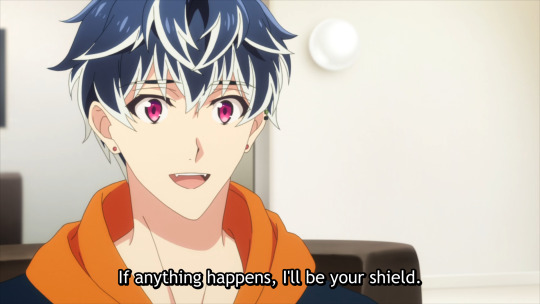
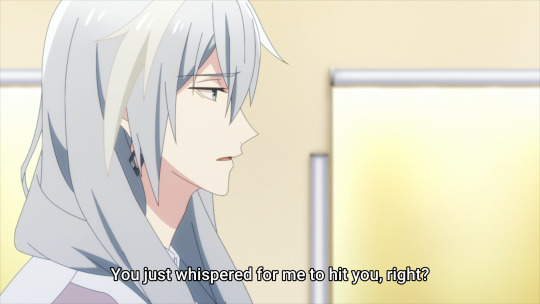

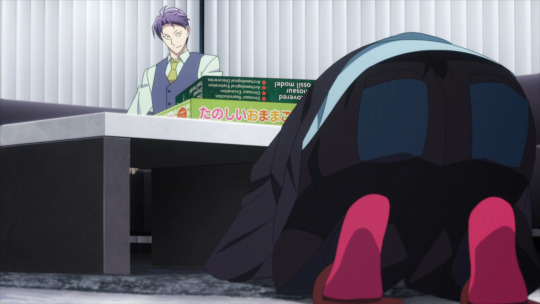
(yes I know Momo mentioned he only dogeza one other time and that was with Yuki. But doesnt change he suggested him doing that just last episode, albeit with more powerful people. Even Ryo said “This doesn’t feel rare coming from you”).
The way he willingly offers to puts himself in harms ways and tries to sacrifice himself to protect those around him is a surprisingly amount of times (its not something I noticed immediately, or had written off for reasons related to situation’s circumstances. But seeing this keep happening over time, at least compared to other characters…). And while nothing luckily has come of it yet, its been a pattern since Second Beat. Who knows how long has he has been doing this before he’s been introduced.
Even when he made the deal with Ryo, he doesn’t even bring up protecting himself. Just Yuki, and only him.
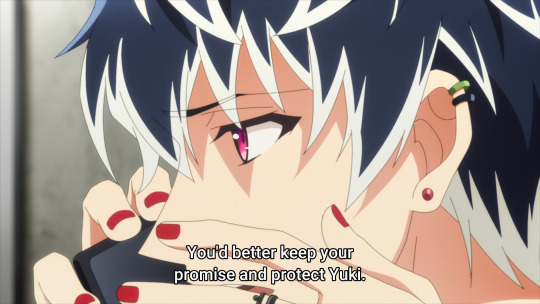
In general, Momo is really kind and generous person that goes above and beyond to help those around him (offered his MC spots to Mitsuki to promote i7′s show; helped his NEXT Re:vale guests / costars when they were nervous; gave Yamato advice and a safe space to talk; the times Re:vale has helped TRG and IDOLiSH7 including recommending IDOLiSH7 to the Zero Arena Inauguration manager, covering for i7′s show when Riku wasn’t feeling well, the gifts they given to i7 despite them dealing with their own problems, offered Iori & Mitsuki and Yamato a place to stay until they can sort out their group problems without question, some undisclosed stuff Anasagei mentioned that they helped with TRG, etc). But when this is coupled with the more extreme cases referenced at the beginning, he is very selfless to a concerning extent. Not saying he does it on purpose like a death wish or martyr complex. But it certainly feels there is not much trace of concern for his own well being.
Momo had say Ryo was the “master of psychological attacks” and we know exactly what Ryo aimed for with Yuki (which is a lot more concrete and explicit). But I wonder if Ryo is also aware about that side of Momo, and had tried to play into that when he offered that deal with him.

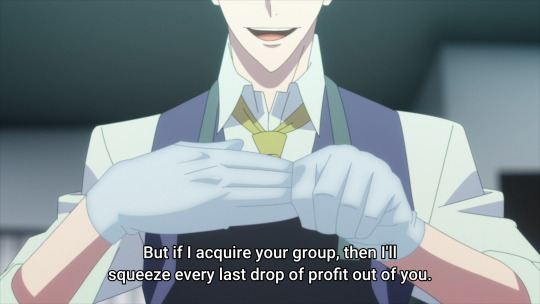
And if it is (because it feels really subtle), is Momo aware of it? Or is that something Momo does know about himself but still does so regardless?
Luckily, nothing serious has resulted from it yet and probably wont for a while since their subplot got resolved last cour and this cour at least seems more focused on TRIGGER and ZOOL. But I don’t know if this is meant signify a certain personality trait within Momo or allude to something that happened in the past.
It might mostly stem from him not making his dream of going to the soccer nationals and viewing old Re:vale as his saviors, so he genuinely feels like he has to devote his life to Yuki and others. But the fact we haven’t seen how Momo and Ryo exactly met, or what happened for them to be such ‘close friends’ makes it difficult to rule out some things. Especially since Re:vale’s rep is being known to be from the small agency that rose out of poverty.
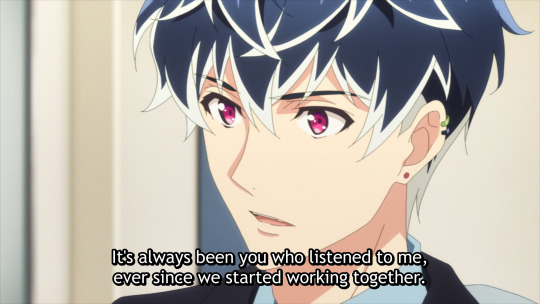
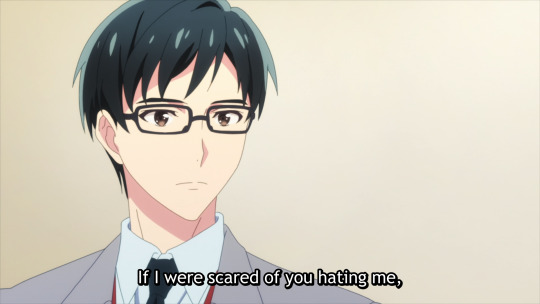

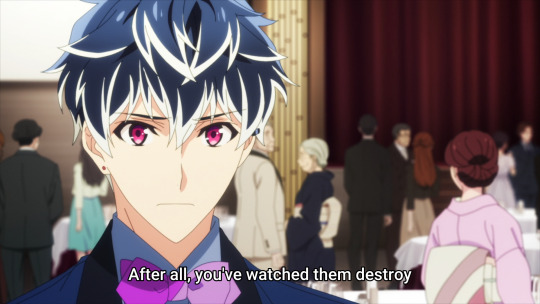

To summarize my thoughts and questions (with the most hella ambiguous response from Momo):
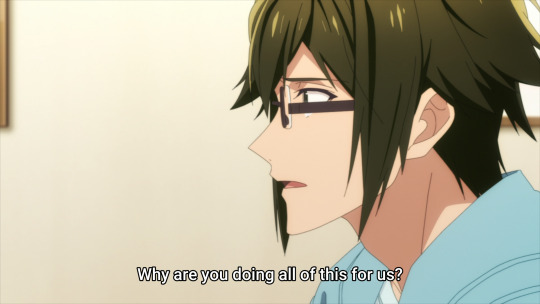
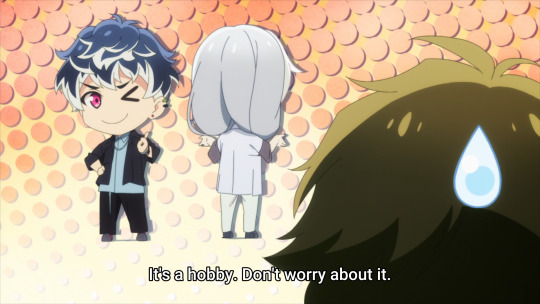
#Momo (IDOLiSH7)#Momose Sunohara#Sunohara Momose#Yuki (IDOLiSH7)#ryo tsukumo#tsukumo ryo#re:vale#IDOLiSH7#idolish7 third beat spoilers#necle’s ramblings#‘iTs A hObBy’#bruh what do you mean its a hobby???#this has been something thats been lingering in my mind with momo but felt it could be just concidental or that he is really kind.#but at this point with the frequency it might be worth mentioning#character analysis#this all might be concidental though…or not plot relevant#heads up just to be safe: im an anime only so while I LOVE LOVE to chat about i7 brainrot please no spoilers. thank you!
107 notes
·
View notes
Note
Do you have any headcanons for Remus that are essential to you/maybe unpopular? I’m really curious about the particularities of your Remus depiction
hi doll!! i thought long and hard abt this ask. remus is my fave, my best boy, my terrible little man so!! i definitely have some thoughts, but i feel largely that its not as much that my headcanons are unpopular, than it is that i really, really don't like some of the remus headcanons that are popular? anyway, thinking about the consistencies in the way i imagine remus, this is what i came up with. under the cut because i talk way too much!
judging from a post i made earlier in the week this isnt necessarily unpopular, but its important to me that remus is not portrayed as some conventionally attractive god. christ, that's so boring to me, that's such a boring thing to do to his character. its one thing for sirius to think he's beautiful, like - yeah, the guy is stupid for him - but actually he looks like a normal, pretty scrawny guy. its everything else about him that makes him so attractive. he's attractive the same way a darned sock is charming!! he's attractive in a scribbly, smudged kinda way!! also any portrayal of remus being especially strong/toned/commanding/possessive because of the wolf....i hate it i hate it i hate it. the wolf leaves him weaker. he does not find strength in it.
drawing a little from canon remus here, but a flaw i consistently give him + enjoy seeing is the strange, sacrificial martyr complex he has, or more so the way he sees his own suffering. remus doesnt really know any better than it, but i always like characterisations where he, at least as a younger man, has a tendency to obsess over it to the point where he needs to be troubled and edgy and tragic to be himself, to be interesting and to have purpose. especially in regards to his feelings toward sirius, i love love love a remus that feels he has to suffer for his love, even though he literally doesn't. i think he has the capacity to be an incredibly pretentious person.
pretty common but definitely essential: working class remus! not just as an adult when he's struggling with employment, but remus from a working class background is near and dear and essential to me as a person from a working class background themselves, especially amidst a cast where many of them are comfortably upper class.
i don't really go for organised, put together, tidy remus lupin. i feel like there's generally two extremes around here where he's either the lone responsible Adult, or a fucking mess. i much prefer him being a fucking mess. i don't think he's had water in four days, i don't think he's slept in two, i think all his clothes are in a pile underneath his bed, i think he'll write the essay but he'll do it at four in the morning on the day its due. he's a disaster.
coward. coward remus lupin rights. absolutely. also hesitant. if he does the right thing it might take him a while to get round to it, yknow. he's going to wallow in the situation for a bit first
soooo pretentious about music + literature. and as ive said before, his dress sense, for a variety of reasons, is so fucking shit and half-assed. he doesn't care!!
its pretty much essential to me, at least in a canon compliant universe, that he's got a very particular sort of relationship with his dad. to be honest i have so many thoughts on the lupins as a family unit and lyall in particular. i think they're fascinating, and im not big on remus and lyall having a perfect relationship once lyall atones for his earlier prejudice. lyall loves his son but that is surely distorted by the fact that every time he looks at him he is going to be reminded of the worst mistake of his life, lol. i also think he's very hard + strict on remus about keeping his secret/keeping his grades up/doing everything he can to secure some kind of future despite his affliction. neither of them are good at communicating so his worry often translates into anger, which leads to a lot of arguments and a strained, less familiar relationship. they don't understand each other, especially after hope dies. remus absolutely gets his inability to communicate his feelings from his father. but hope is a dream!
not essential but i will always write him as welsh <3 its so important to me <3
he's an awkward guy. he's fiddly and he sits like his limbs are too long for him to know what to do with them and he's always picking at loose threads on his clothes, or scabs, and he's absolutely a nail biter. the other boys slap his hand away from his mouth when they see him doing it but. his nails are consistently in a proper fucking state.
i think he's a bastard and an arsehole but i dont think remus was mean. i like the idea of a kind remus lupin, even if he's a mess and a bit of a prick to people that he felt wouldn't be hurt by it. he'll do people a favour, he'll take his time to help people out! he's a selfless guy, and he might be ridiculously late but he'll turn up. i dont even think he was sassy, and i really dont like the way thats slowly progressed to him often just being portrayed as...mean? he was witty and sarcastic around his friends but like. sassy is not a word id ever use to describe remus lupin lmao. idk. though he's a tosser and he's insufferable, he's not rude.
not a headcanon but i just want to say again. we should let him punch people more often. he wont be good at it but we should let him have a go anyway
oh also he's a socialist. like at the very least lol.
EDIT: had to add this in but. he's lovely. he's so lovely.
okay i could talk forever on the guy but this is already! way too much! so i'll stop here. thank u anon i will always be up for talking about this dumb little guy!!
#bonuses: he's got a gay little earring and he's incredibly foul mouthed.#oh and pathetic remus lupin rights. lets let him be more pathetic#really could sit here all day but. theres so much abt remus' characterisation that i havent gotten to write into a fic yet#its constantly developing. id write him so differently now to how i first wrote him lol#like!! ive never even GIVEN him a gay little earring yet! ive got to sort myself out!#and like#dont hate me dont hate me but. some of the remus characterisations in really big fics i just. i just couldnt get on with at all.#and thats okay!! thats literally a me problem nothing to with the fic but. it has made me very very picky about r/s fics#remus lupin#r#anon#telegram
100 notes
·
View notes
Text
Anonymous asked: I have always appreciated your thoughtful views on the defence of the British monarchy, and as a university historian it’s reassuring to see someone using history to make invalubale insights to a controversial institution. I wonder what are your own thoughts on the passing of Prince Philip and what his legacy might be? Was he a gaffe prone racist and a liability to the Queen?
I know you kindly got in touch and identified yourself when you felt I was ignoring your question. I’m glad we cleared that up via DM. The truth is as I said and I’m saying here is that I had to let some time pass before I felt I could reasonably answer this question. Simply because - as you know as someone who teaches history at university - distance is good to make a sober appraisal rather than knee jerk in the moment judgements.
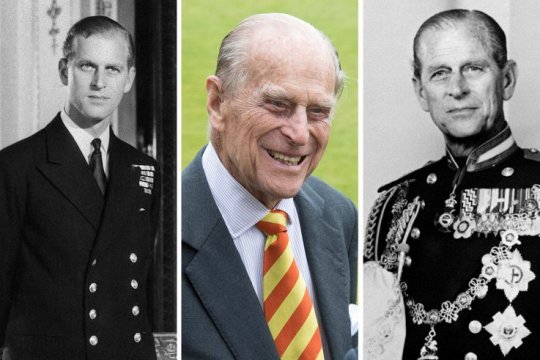
Contrary to what some might think I’m not really a fan girl when it comes to the royal family. I don’t religiously follow their every movement or utterance especially as I live in Paris and therefore I don’t really care about tabloid tittle tattle. I only get to hear of anything to do with the royal family when I speak to my parents or my great aunts and uncles for whom the subject is closer to their heart because of the services my family has rendered over past generations to the monarchy and the older (and dying) tight knit social circles they travel in.
Like Walter Bagehot, I’m more interested in the monarchy as an institution and its constitutional place within the historical, social, and political fabric of Britain and its continued delicate stabilising importance to that effect. It was Walter Bagehot, the great constitutional scholar and editor the Economist magazine, who said, “The mystic reverence, the religious allegiance, which are essential to a true monarchy, are imaginative sentiments that no legislature can manufacture in any people.” In his view, a politically-inactive monarchy served the best interests of the United Kingdom; by abstaining from direct rule, the monarch levitated above the political fray with dignity, and remained a respected personage to whom all subjects could look to as a guiding light.
Even as a staunch monarchist I freely confess that there has always been this odd nature of the relationship between hereditary monarchy and a society increasingly ambivalent about the institution. To paraphrase Bagehot again, there has been too much ‘daylight’ shone onto the ‘magic’ of the monarchy because we are obsessed with personalities as celebrities.
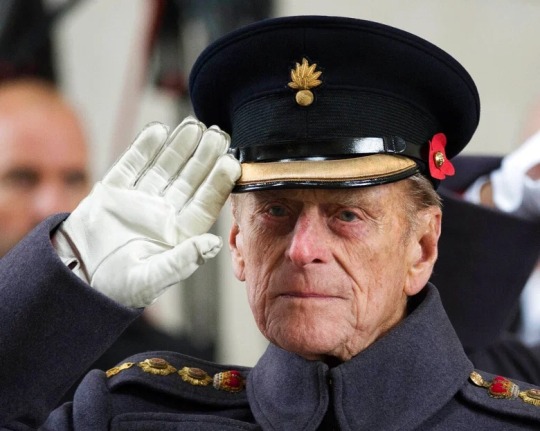
Having said that I did feel saddened by the passing of Prince Philip, the Duke of Edinburgh. After the Queen, he was my favourite royal. Anne, Princess Royal, would come next because she is very much like her father in temperament, humour, and character, so unlike her other brothers.
I have met the late Prince Philip when I was serving in the army in a few regimental meet-and-greet situations - which as you may know is pretty normal given that members of the royal family serve as honorary colonel-in-chiefs (patrons in effect) of all the British army regiments and corps.I also saw him at one or two social events such the annual charitable Royal Caledonian Ball (he’s an expert scottish reeler) and the Guards Polo Club where my older brothers played.
I’ll will freely confess that he was the one royal I could come close to identify with because his personal biography resonated with me a great deal.
Let’s be honest, the core Windsor family members, born to privilege, are conditioned and raised to be dull. Perhaps that’s a a tad harsh. I would prefer the term ‘anonymously self-effacing’, just another way of saying ‘for God’s sake don’t draw attention to yourself by saying or doing anything even mildly scandalous or political lest it invites public opprobrium and scrutiny’. The Queen magnificently succeeds in this but the others from Charles down just haven’t (with the exception of Princess Anne).
However, many people forget this obvious fact that it’s the incoming husbands and wives who marry into the Windsor family who are relied upon to bring colour and even liven things up a little. And long before Kate Middleton, Meghan Markle (very briefly), or Lady Diana Spencer, were the stars of ‘The Firm’- a phrase first coined by King George VI, Queen Elizabeth II's father who ruled from 1936 to 1952, who was thought to have wryly said, "British royals are 'not a family, we're a firm,” - it was Prince Philip who really livened things up and made the greater impact on the monarchy than any of them in the long term.
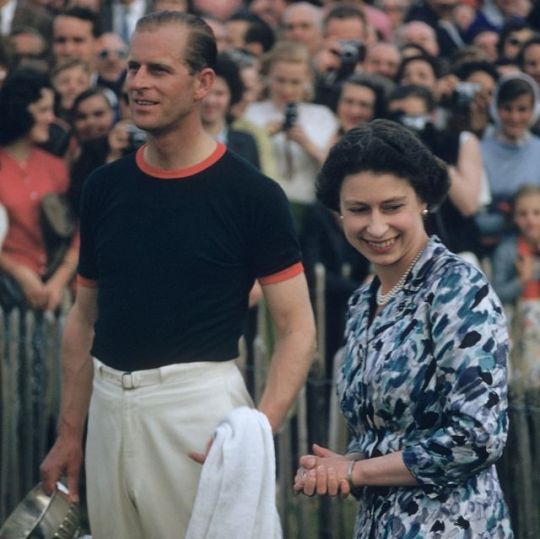
Prince Philip’s passing belied the truth of a far more complex individual: a destitute and penniless refugee Greek-Danish prince with a heart breaking backstory that could have been penned by any 19th Century novelist, and also eagle eyed reformer who tried to drag the royal family into the 20th century. At the core of the man - lost scion of a lost European royal dynasty, a courageous war veteran, and Queen’s consort - were values in which he attempted to transform and yet maintain much older inherited traditions and attitudes. Due to his great longevity, Philip’s life came to span a period of social change that is almost unprecedented, and almost no one in history viewed such a transformation from the front row.
Prince Philip would seem to represent in an acute form the best of the values of that era, which in many ways jar with today’s. He had fought with great courage in the war as a dashing young naval officer; he was regularly rude to foreigners, which was obviously a bonus to all Brits. He liked to ride and sail and shoot things. He was unsentimental almost to a comic degree, which felt reassuring at a time when a new-found emotional incontinence made many feel uncomfortable. Outrageous to some but endearing to others, he was the sort of man you’d want to go for a pint with, perhaps the ultimate compliment that an Englishman can pay to another Englishman. This has its own delicious irony as he wasn’t really an Englishman.
There are 4 takeways I would suggest in my appraisal of Prince Philip that stand out for me. So let me go through each one.
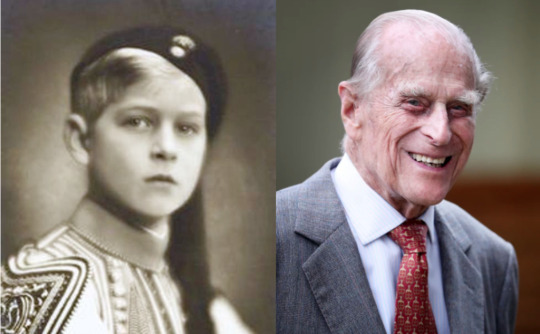
1. Prince Philip’s Internationalism
It may seem odd for me to say that Prince Philip wasn’t English but he wasn’t an Englishman in any real sense. He was a wretch of the world - stateless, homeless, and penniless. That the Prince of Nowhere became the British Monarchy’s figurehead was more than fitting for a great age of migration and transition in which the Royal Family survived and even flourished. That he was able to transform himself into the quintessential Englishman is testimony not just to his personal determination but also to the powerful cultural pull of Britishness.
He was born on a kitchen table in Corfu in June 1921. A year later in 1922, Philip, as the the great-great-grandson of Queen Victoria and nephew of Constantine I of Greece, was forced to flee with his family after the abdication of Constantine. He grew up outside Paris speaking French; ethnically he was mostly German although he considered himself Danish, his family originating from the Schleswig border region. He was in effect, despite his demeanour of Royal Navy officer briskness, a citizen of nowhere in an age of movement. From a very young age he was a stateless person, nationally homeless. Indeed, Philip was an outsider in a way that even Meghan Markle could never be; at his wedding in 1947, his three surviving sisters and two brothers-in-law were not permitted to attend because they were literally Britain’s enemies, having fought for the Germans. A third brother-in-law had even been in the SS, working directly for Himmler, but had been killed in the conflict.
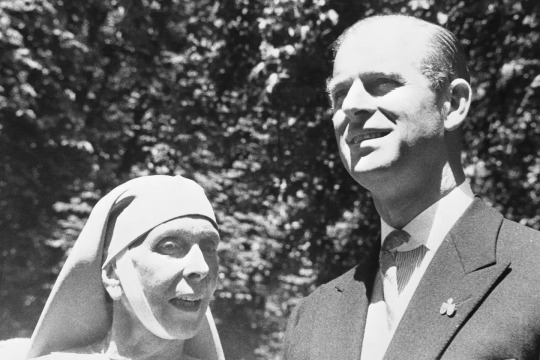
Even his religion was slightly exotic. He was Greek Orthodox until he converted to Anglicanism on marrying Elizabeth - what with his wife due to become supreme head of the Church and everything - but his ties with eastern Christianity remained. His great-aunts Princess Elisabeth of Hesse and by Rhine and Tsarina Alexandra are both martyrs of the Russian Orthodox Church, having been murdered by the Bolsheviks; Philip’s mother went on to become an Orthodox nun and a “Righteous Among the Nations” for saving a Jewish family during the Nazi occupation of Greece, spending much of her time in squalid poverty.
His parents were part of the largely German extended aristocracy who ruled almost all of Europe before it all came crashing down in 1918. When he died, aged 99, it marked a near-century in which all the great ideological struggles had been and gone; he had been born before the Soviet Union but outlived the Cold War, the War on Terror and - almost - Covid-19.
The world that Philip was born into was a far more violent and dangerous place than ours. In the year he was born, Irish rebels were still fighting Black and Tans; over the course of 12 months the Spanish and Japanese prime ministers were assassinated, there was a coup in Portugal and race riots in the United States. Germany was rocked by violence from the far-Left and far-Right, while in Italy a brutal new political movement, the Fascists, secured 30 seats in parliament, led by a trashy journalist called Benito Mussolini.
The worst violence, however, took place in Greece and Turkey. Following the defeat of the Ottoman Empire, what remained of Turkey was marked for permanent enfeeblement by the Allies. But much to everyone’s surprise the country’s force were roused by the brilliant officer Mustafa Kemal, who led the Turks to victory. Constantinople was lost to Christendom for good and thousands of years of Hellenic culture was put to the flames in Smyrna.
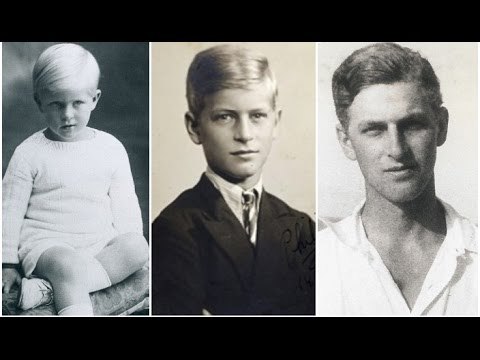
The Greek royal family, north German imports shipped in during the 19th century, bore much of the popular anger for this disaster. King Constantine fled to Italy, and his brother Andrew was arrested and only escaped execution through the intervention of his relative Britain’s George V. Andrew’s wife Alice, their four daughters and infant son Philip fled to France, completely impoverished but with the one possession that ensures that aristocrats are never truly poor: connections.
Philip had a traumatic childhood. He was forged by the turmoil of his first decade and then moulded by his schooling. His early years were spent wandering, as his place of birth ejected him, his family disintegrated and he moved from country to country, none of them ever his own. When he was just a year old, he and his family were scooped up by a British destroyer from his home on the Greek island of Corfu after his father had been condemned to death. They were deposited in Italy. One of Philip's first international journeys was spent crawling around on the floor of the train from an Italian port city, "the grubby child on the desolate train pulling out of the Brindisi night," as his older sister Sophia later described it.
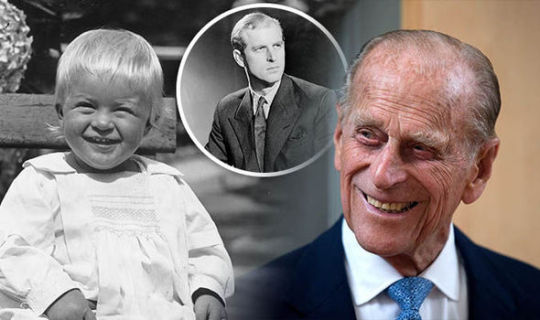
In Paris, he lived in a house borrowed from a relative; but it was not destined to become a home. In just one year, while he was at boarding school in Britain, the mental health of his mother, Princess Alice, deteriorated and she went into an asylum; his father, Prince Andrew, went off to Monte Carlo to live with his mistress. "I don't think anybody thinks I had a father," he once said. Andrew would die during the war. Philip went to Monte Carlo to pick up his father's possessions after the Germans had been driven from France; there was almost nothing left, just a couple of clothes brushes and some cuff-links.
Philip’s four sisters were all much older, and were soon all married to German aristocrats (the youngest would soon die in an aeroplane crash, along with her husband and children). His sisters became ever more embroiled in the German regime. In Scotland going to Gordonstoun boarding school, Philip went the opposite direction, becoming ever more British. Following the death of his sister Cecilie in a plane crash in 1937, the gulf widened. As the clouds of conflict gathered, the family simply disintegrated. With a flash of the flinty stoicism that many would later interpret, with no little justification, as self-reliance to the point of dispassion, the prince explained: “It’s simply what happened. The family broke up… I just had to get on with it. You do. One does.”
In the space of 10 years he had gone from a prince of Greece to a wandering, homeless, and virtually penniless boy with no-one to care for him. He got through it by making a joke of everything, and by being practical.
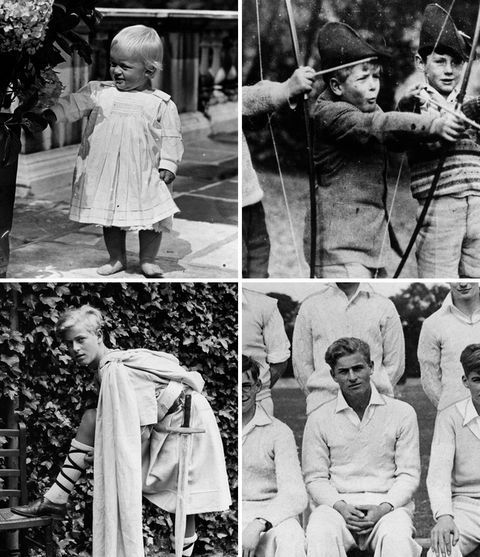
By the time he went to Gordonstoun, a private boarding school on the north coast of Scotland, Philip was tough, independent and able to fend for himself; he'd had to be. Gordonstoun would channel those traits into the school's distinct philosophy of community service, teamwork, responsibility and respect for the individual. And it sparked one of the great passions of Philip's life - his love of the sea. It was Gordonstoun that nurtured that love through the maturation of his character.
Philip adored the school as much as his son Charles would despise it. Not just because the stress it put on physical as well as mental excellence - he was a great sportsman. But because of its ethos, laid down by its founder Kurt Hahn, a Jewish exile from Nazi Germany.
Hahn first met Philip as a boy in Nazi Germany. Through a connection via one of his sister’s husbands, Philip, the poor, lonely boy was first sent off to a new school - in Nazi Germany. Which was as fun as can be imagined. Schloss Salem had been co-founded by stern educator called Kurt Hahn, a tough, discipline-obsessed conservative nationalist who saw civilisation in inexorable decline. But by this stage Hahn, persecuted for being Jewish in Nazi Germany, had fled to Britain, and Philip did not spend long at the school either, where pressure from the authorities was already making things difficult for the teachers. Philip laughed at the Nazis at first, because their salute was the same gesture the boys at his previous school had to make when they wanted to go to the toilet, but within a year he was back in England, a refugee once again.
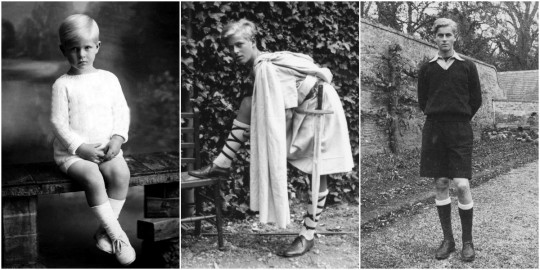
Philip happily attended Hahn’s new school, Gordonstoun, which the strict disciplinarian had set up in the Scottish Highlands. Inspired by Ancient Sparta, the boys (and then later girls) had to run around barefoot and endure cold showers, even in winter, the whole aim of which was to drive away the inevitable civilisational decay Hahn saw all around him. To 21st century ears it sounds like hell on earth, yet Philip enjoyed it, illustrating just what a totally alien world he came from.
That ethos became a significant, perhaps the significant, part of the way that Philip believed life should be lived. It shines through the speeches he gave later in his life. "The essence of freedom," he would say in Ghana in 1958, "is discipline and self-control." The comforts of the post-war era, he told the British Schools Exploring Society a year earlier, may be important "but it is much more important that the human spirit should not be stifled by easy living". And two years before that, he spoke to the boys of Ipswich School of the moral as well as material imperatives of life, with the "importance of the individual" as the "guiding principle of our society".
It was at Gordonstoun one of the great contradictions of Philip's fascinating life was born. The importance of the individual was what in Kurt Hahn's eyes differentiated Britain and liberal democracies from the kind of totalitarian dictatorship that he had fled. Philip put that centrality of the individual, and individual agency - the ability we have as humans to make our own moral and ethical decisions - at the heart of his philosophy.
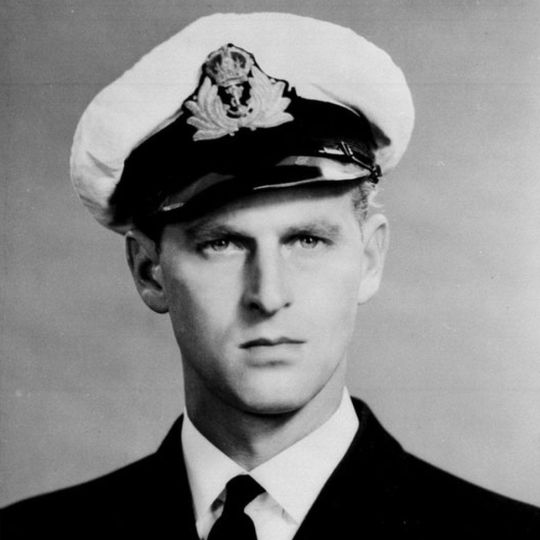
At Dartmouth Naval College in 1939, the two great passions of his life would collide. He had learned to sail at Gordonstoun; he would learn to lead at Dartmouth. And his driving desire to achieve, and to win, would shine through. Despite entering the college far later than most other cadets, he would graduate top of his class in 1940. In further training at Portsmouth, he gained the top grade in four out of five sections of the exam. He became one of the youngest first lieutenants in the Royal Navy.
The navy ran deep in his family. His maternal grandfather had been the First Sea Lord, the commander of the Royal Navy; his uncle, "Dickie" Mountbatten, had command of a destroyer while Philip was in training. In war, he showed not only bravery but guile. It was his natural milieu. "Prince Philip", wrote Gordonstoun headmaster Kurt Hahn admiringly, "will make his mark in any profession where he will have to prove himself in a trial of strength".
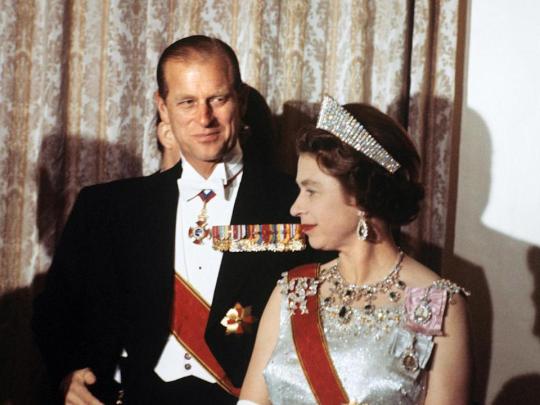
2. Prince Philip and the modernisation of the monarchy
In his own words, the process of defining what it meant to be a royal consort was one of “trial and error.” Speaking with BBC One’s Fiona Bruce in 2011, Philip explained, “There was no precedent. If I asked somebody, 'What do you expect me to do?' they all looked blank. They had no bloody idea, nobody had much idea.” So he forged for himself a role as a moderniser of the monarchy.
He could not have had much idea back in 1939. Back then in Dartmouth in 1939, as war became ever more certain, the navy was his destiny. He had fallen in love with the sea itself. "It is an extraordinary master or mistress," he would say later, "it has such extraordinary moods." But a rival to the sea would come.
When King George VI toured Dartmouth Naval College, accompanied by Philip's uncle, he brought with him his daughter, Princess Elizabeth. Philip was asked to look after her. He showed off to her, vaulting the nets of the tennis court in the grounds of the college. He was confident, outgoing, strikingly handsome, of royal blood if without a throne. She was beautiful, a little sheltered, a little serious, and very smitten by Philip.
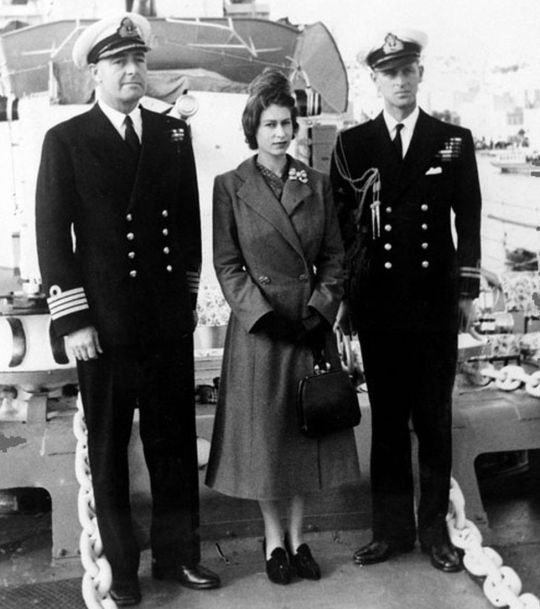
Did he know then that this was a collision of two great passions? That he could not have the sea and the beautiful young woman? For a time after their wedding in 1948, he did have both. As young newlyweds in Malta, he had what he so prized - command of a ship - and they had two idyllic years together. But the illness and then early death of King George VI brought it all to an end.
He knew what it meant, the moment he was told. Up in a lodge in Kenya, touring Africa, with Princess Elizabeth in place of the King, Philip was told first of the monarch's death in February 1952. He looked, said his equerry Mike Parker, "as if a ton of bricks had fallen on him". For some time he sat, slumped in a chair, a newspaper covering his head and chest. His princess had become the Queen. His world had changed irrevocably.
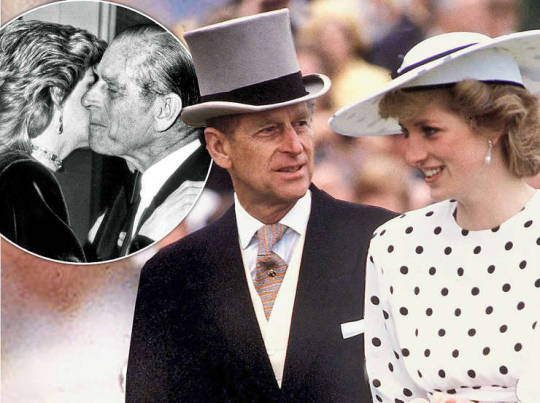
While the late Princess Diana was later to famously claim that there were “three people” in her marriage - herself, Prince Charles and Camilla - there were at least 55 million in Philip and Elizabeth’s. As Elizabeth dedicated her life to her people at Westminster Abbey at the Coronation on June 2, 1953, it sparked something of an existential crisis in Philip. Many people even after his death have never really understood this pivotal moment in Philip’s life. All his dreams of being a naval officer and a life at sea as well as being the primary provider and partner in his marriage were now sacrificed on the altar of duty and love.
With his career was now over, and he was now destined to become the spare part. Philip, very reasonably, asked that his future children and indeed his family be known by his name, Mountbatten. In effect he was asking to change the royal family’s name from the House of Windsor to the House of Mountbatten. But when Prime Minister Winston Churchill got wind of it as well as the more politically agile courtiers behind the Queen, a prolonged battle of wits ensued, and it was one Philip ultimately lost. It was only in 1957 that he accepted the title of “Prince.”
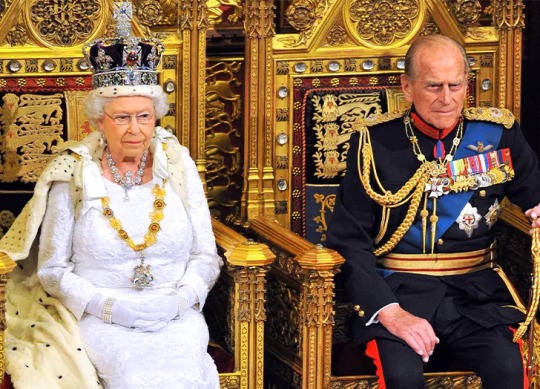
Even though he had almost lost everything dear to him and his role now undefined, he didn’t throw himself a pity party. He just got on with it. Philip tried to forge his own distinct role as second fiddle to the woman who had come to represent Great Britain. He designated himself the First Officer of the Good Ship Windsor. He set about dusting off some of the cobwebs off the throne and letting some daylight unto the workings of the monarchy by advocating reasonable amount of modernisation of the monarchy.
He had ideas about modernising the royal family that might be called “improving optics” today. But in his heart of hearts he didn’t want the monarchy to become a stuffy museum piece. He envisaged a less stuffy and more popular monarchy, relevant to the lives of ordinary people. Progress was always going to be incremental as he had sturdy opposition from the old guard who wanted to keep everything as it was, but nevertheless his stubborn energy resulted in significant changes.
When a commission chaired by Prince Philip proposed broadcasting the 1953 investiture ceremony that formally named Elizabeth II as queen on live television, Prime Minister Winston Churchill reacted with outright horror, declaring, “It would be unfitting that the whole ceremony should be presented as if it were a theatrical performance.” Though the queen had initially voiced similar concerns, she eventually came around to the idea, allowing the broadcast of all but one segment of the coronation. Ultimately, according to the BBC, more than 20 million people tuned in to the televised ceremony - a credit to the foresight of Philip.
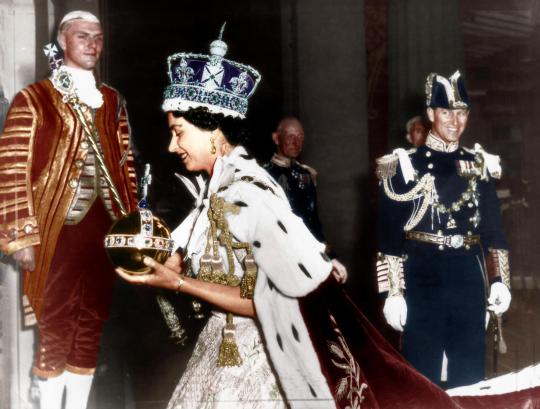
Elizabeth’s coronation marked a watershed moment for a monarchy that has, historically, been very hands off, old-fashioned and slightly invisible. Over the following years, the royals continued to embrace television as a way of connecting with the British people: In 1957, the queen delivered her annual Christmas address during a live broadcast. Again, this was Philip’s doing when he cajoled the Queen to televise her message live. He even helped her in how to use the teleprompter to get over her nerves and be herself on screen.
Four years later, in 1961, Philip became the first family member to sit for a television interview. It is hard for us to imagine now but back then it was huge. For many it was a significant step in modernising the monarchy.
Though not everything went to plan. Toward the end of the decade, the Windsors even invited cameras into their home. A 1969 BBC fly-on-the-wall documentary, instigated by Philip to show life behind the scenes, turned into an unmitigated disaster: “The Windsors” revealed the royals to be a fairly normal, if very rich, British upper-class family who liked barbecues, ice cream, watching television and bickering. The mystery of royalty took a hit below the waterline from their own torpedo, a self-inflicted wound from which they took a long time to recover. Shown once, the documentary was never aired again. But it had an irreversible effect, and not just by revealing the royals to be ordinary. By allowing the cameras in, Philip opened the lid to the prying eyes of the paparazzi who could legitimately argue that since the Royals themselves had sanctioned exposure, anything went. From then on, minor members of the House of Windsor were picked off by the press, like helpless tethered animals on a hunting safari.
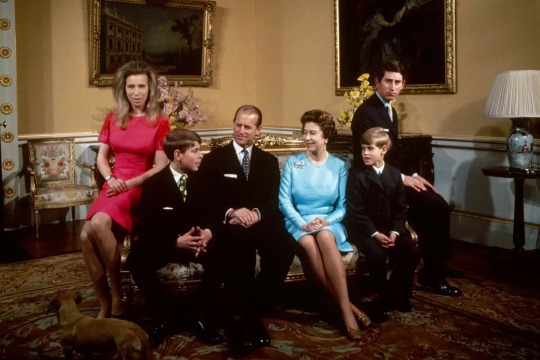
Prince Philip also took steps to reorganise and renovate the royal estates in Sandringham and Balmoral such as intercoms, modern dish washers, generally sought to make the royal household and the monarchy less stuffy, not to have so much formality everywhere.
Philip helped modernised the monarchy in other ways to acknowledge that the monarchy could be responsive to changes in society. It was Prince Philip - much to the chagrin of the haughty Princess Margaret and other stuffy old courtiers - who persuaded the Queen to host informal lunches and garden parties designed to engage a broader swath of the British public. Conversely, Prince Philip heartily encouraged the Queen (she was all for it apparently but was still finding her feet as a new monarch) to end the traditional practice of presenting debutantes from aristocratic backgrounds at court in 1952. For Philip and others it felt antiquated and out of touch with society. I know in speaking to my grandmother and others in her generation the decision was received with disbelief at how this foreign penniless upstart could come and stomp on the dreams of mothers left to clutch their pearls at the prospect there would be no shop window for their daughter to attract a suitable gentleman for marriage. One of my great aunts was over the moon happy that she never would have to go through what she saw as a very silly ceremony because she preferred her muddy wellies to high heels.
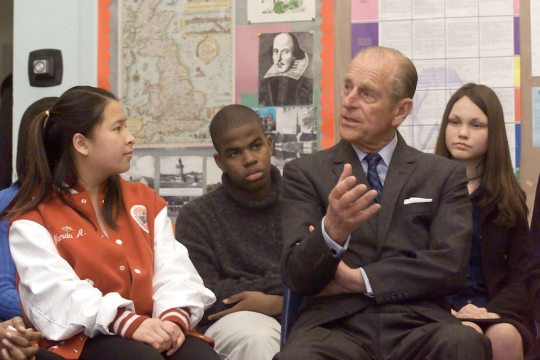
A former senior member of the royal household, who spent several years working as one of Prince Philip’s aides, and an old family friend, once told us around a family dinner table that the Duke of Edinburgh was undoubtedly given a sense of permanence by his marriage into the Royal Family that was missing from earlier years. But the royal aide would hastily add that Prince Philip, of course, would never see it that way.
Prince Philip’s attitude was to never brood on things or seek excuses. And he did indeed get on with the job in his own way - there should be no doubt that when it came to building and strengthening the Royal Family it was a partnership of equals with the Queen. Indeed contrary to Netflix’s hugely popular series ‘The Crown’ and its depiction of the royal marriage with Philip’s resentment at playing second fiddle, the prince recognised that his “first duty was to serve the Queen in the best way I could,” as he told ITV in 2011. Though this role was somewhat ill-suited to his dynamic, driven, and outspoken temperament, Philip performed it with utter devotion.
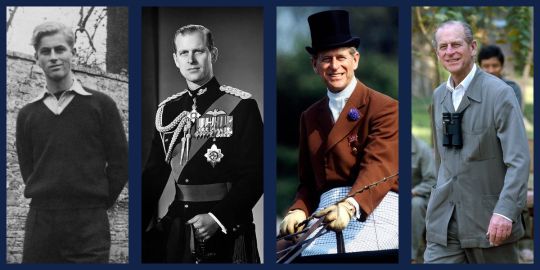
3. Prince Philip’s legacy
One could argue rightly that modernising the monarchy was his lasting legacy achievement. But he also tried to modernise a spent and exhausted Britain as it emerged from a ruinous war. When peace came, and with it eventual economic recovery, Philip would throw himself into the construction of a better Britain, urging the country to adopt scientific methods, embracing the ideas of industrial design, planning, education and training. A decade before Harold Wilson talked of the "white heat of the technological revolution", Philip was urging modernity on the nation in speeches and interviews. He was on top of his reading of the latest scientific breakthroughs and well read in break out innovations.
This interest in modernisation was only matched by his love for nature. As the country and the world became richer and consumed ever more, Philip warned of the impact on the environment, well before it was even vaguely fashionable. As president of the World Wildlife Fund (WWF) in the UK for more than 20 years from 1961, he was one of the first high-profile advocates of the cause of conservation and biological diversity at a time when it was considered the preserve of an eccentric few.
For a generation of school children in Britain and the Commonwealth though, his most lasting legacy and achievement will be the Duke of Edinburgh Awards (DofE). He set up the Duke of Edinburgh award, a scheme aimed at getting young people out into nature in search of adventure or be of service to their communities. It was a scheme that could match the legacy of Baden Powell’s scouts movement.
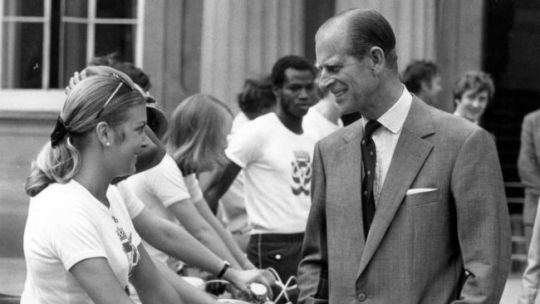
When Prince Philip first outlined his idea of a scheme to harness the values of his education at Gordonstoun by bringing character-building outdoor pursuits to the many rather than the fee-paying few, he received short shrift from the government of the day. The then minister of education, Sir David Eccles responded to the Duke’s proposal by saying: “I hear you’re trying to invent something like the Hitler Youth.” Undeterred he pushed on until it came to fruition.
I’m so glad that he did. I remember how proud I was for getting my DofE Awards while I was at boarding school. With the support of great mentors I managed to achieve my goals: collecting second-hand English books for a literacy programme for orphaned street children in Delhi, India with a close Indian school friend and her family; and completing a 350 mile hike following St. Olav’s Pilgrimmage Trail from Selånger, on the east coast of Sweden, and ending at Nidaros Cathedral in Trondheim, on the west coast of Norway.
It continues to be an enduring legacy. Since its launch in 1956, the Duke of Edinburgh awards have been bestowed upon some 2.5 million youngsters in Britain and some eight million worldwide. For a man who once referred to himself as a “Greek princeling of no consequence”, his pioneering tutelage of these two organisations (alongside some 778 other organisations of which he was either president or a patron) would be sufficient legacy for most.
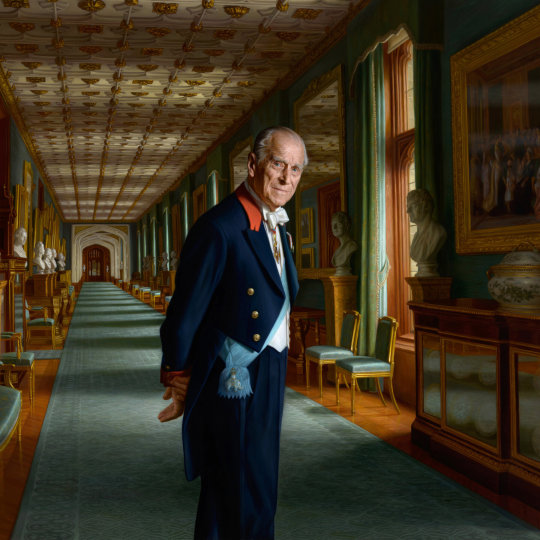
4. Prince Philip’s character
It may surprise some but what I liked most about Prince Philip was the very thing that helped him achieve so much and leave a lasting legacy: his character.
It is unhelpful to the caricature of Prince Philip as an unwavering but pugnacious consort whose chief talent was a dizzying facility in off-colour one-liners that he was widely read and probably the cleverest member of his family.
His private library at Windsor consists of 11,000 tomes, among them 200 volumes of poetry. He was a fan of Jung, TS Eliot, Shakespeare and the cookery writer Elizabeth David. As well as a lifelong fascination with science, technology and sport, he spoke fairly fluent French, painted and wrote a well received book on birds. It’s maddening to think how many underestimated his genuine intellect and how cultured he was behind the crusty exterior.
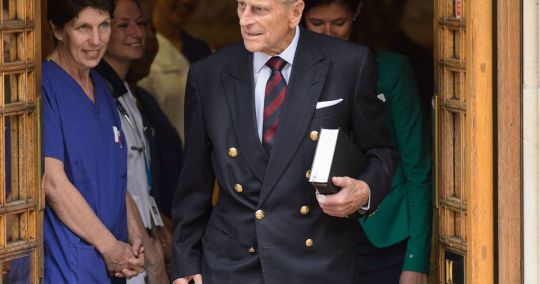
He didn’t have an entourage to fawn around him. He was the first to own a computer at Buckingham Palace. He answered his own phone and wrote and responded to his own correspondence. By force of character he fought the old guard courtiers at every turn to modernise the monarchy against their stubborn resistance.
Prince Philip was never given to self-analysis or reflection on the past. Various television interviewers tried without success to coerce him in to commenting on his legacy.But once when his guard was down he asked on the occasion of his 90th birthday what he was more proud of, he replied with characteristic bluntness: “I couldn’t care less. Who cares what I think about it, I mean it’s ridiculous.”
All of which neatly raises the profound aversion to fuss and the proclivity for tetchiness often expressed in withering put-downs that, for better or worse, will be the reflex memory for many of the Duke of Edinburgh. If character is a two edged sword so what of his gaffes?
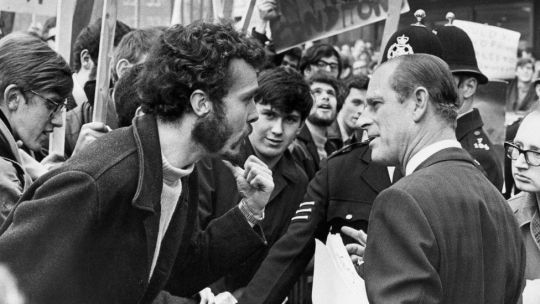
There is no doubt his cult status partly owed to his so-called legendary gaffes, of which there are enough to fill a book (indeed there is a book). But he was no racist. None of the Commonwealth people or foreign heads of state ever said this about him. Only leftist republicans with too much Twitter time on their hands screamed such a ridiculous accusation. They’re just overly sensitive snowflakes and being devoid of any humour they’re easily triggered.
There was the time that Philip accepted a gift from a local in Kenya, telling her she was a kind woman, and then adding: “You are a woman, aren’t you?” Or the occasion he remarked “You managed not to get eaten, then?” to a student trekking in Papua New Guinea. Then there was his World Wildlife Fund speech in 1986, when he said: “If it has got four legs and it is not a chair, if it has got two wings and it flies but is not an aeroplane, and if it swims and it is not a submarine, the Cantonese will eat it.” Well, he wasn’t wrong.
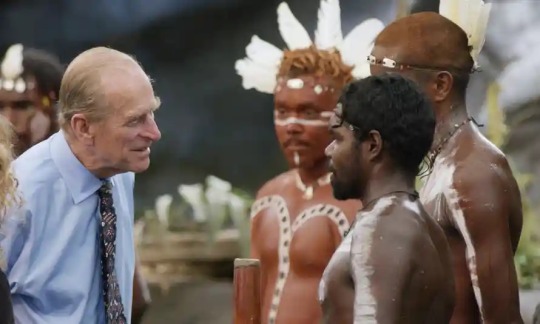
Philip quickly developed a reputation for what he once defined, to the General Dental Council, as “dentopedology – the science of opening your mouth and putting your foot in it”. Clearly he could laugh at himself as he often did as an ice breaker to put others at ease.
His remarking to the president of Nigeria, who was wearing national dress, “You look like you’re ready for bed”, or advising British students in China not to stay too long or they would end up with “slitty eyes”, is probably best written off as ill-judged humour. Telling a photographer to “just take the fucking picture” or declaring “this thing open, whatever it is”, were expressions of exasperation or weariness with which anyone might sympathise.
Above all, he was also capable of genuine if earthy wit, saying of his horse-loving daughter Princess Anne: “If it doesn’t fart or eat hay she isn’t interested.” Many people might have thought it but few dared say it. If Prince Philip’s famous gaffes provoked as much amusement as anger, it was precisely because they seem to give voice to the bewilderment and pent-up frustrations with which many people viewed the ever-changing modern world.
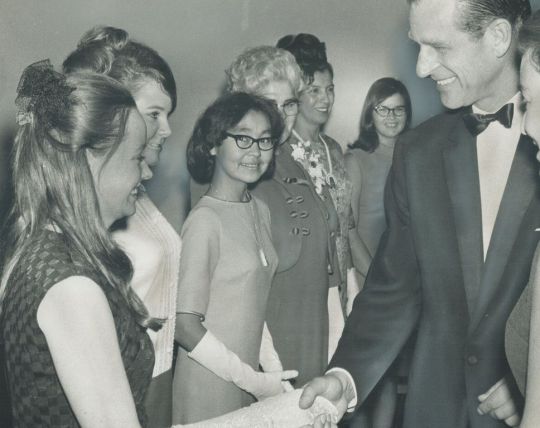
A former royal protection officer recounts how while on night duty guarding a visiting Queen and consort, he engaged in conversation with colleagues on a passing patrol. It was 2am and the officer had understood the royal couple to be staying elsewhere in the building until a window above his head was abruptly slammed open and an irate Prince Philip stuck his head out of the window to shout: “Would you fuck off!” Without another word, he then shut the window.
The Duke at least recognised from an early age that he was possessed of an abruptness that could all too easily cross the line from the refreshingly salty to crass effrontery.
One of his most perceptive biographers, Philip Eade, recounted how at the age of 21 the prince wrote a letter to a relation whose son had recently been killed in combat. He wrote: “I know you will never think much of me. I am rude and unmannerly and I say things out of turn which I realise afterwards must have hurt someone. Then I am filled with remorse and I try to put matters right.”
In the case of the royal protection officer, the Duke turned up in the room used by the police officers when off duty and said: “Terribly sorry about last night, wasn’t quite feeling myself.”
Aides have also ventured to explain away some of their employer’s more outlandish remarks - from asking Cayman islanders “You are descended from pirates aren’t you?” to enquiring of a female fashion writer if she was wearing mink knickers - as the price of his instinctive desire to prick the pomposity of his presence with a quip to put others at ease.
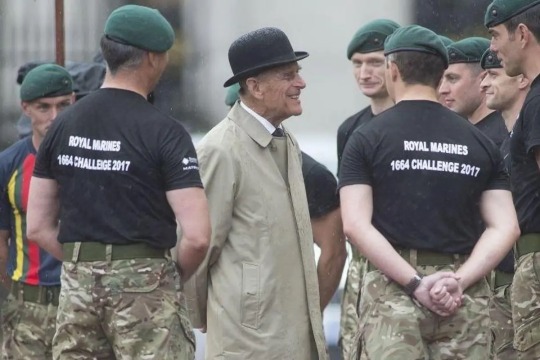
Indeed many people forget that his ‘gaffes’ were more typical of the clubbish humour of the British officer class – which of course would be less appreciated, sometimes even offensive, to other ears. It’s why he could relate so well to veterans who enjoyed his bonhomie company immensely.
But behind the irascibility, some have argued there also lay a darker nature, unpleasantly distilled in his flinty attitude to his eldest son. One anecdote tells of how, in the aftermath of the murder of the Duke’s uncle and surrogate father, Lord Mountbatten, Philip lectured his son, who was also extremely fond of his “honorary grandfather”, that he was not to succumb to self-pity. Charles left the room in tears and when his father was asked why he had spoken to his son with so little compassion, the Duke replied: “Because if there’s any crying to be done I want it to happen within this house, in front of his family, not in public. He must be toughened up, right now.”
But here I would say that Prince Philip’s intentions were almost always sincere and in no way cruel. He has always tried to protect his family - even from their own worst selves or from those outside the family ‘firm’ who may not have their best interest at heart.
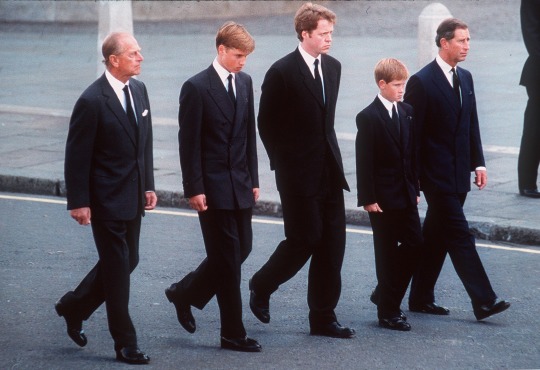
In 1937, a 16-year-old Prince Philip had walked behind his elder sister Cecile’s coffin after she was killed in a plane crash while heavily pregnant. The remains of newly-born infant found in the wreckage suggested the aircraft had perished as the pilot sought to make an emergency landing in fog as the mother entered childbirth. It was an excruciating taste of tragedy which would one day manifest itself in a very princely form of kindness that was deep down that defined Philip’s character.
When about 60 years later Prime Minister Tony Blair’s spin doctors in Downing Street tried to strong arm the Queen and the royal household over the the arrangements for the late Prince Diana’s funeral, it was Philip who stepped in front to protect his family. The Prime Minister and his media savvy spin doctors wanted the two young princes, William and Harry, to walk behind the coffin.
The infamous exchange was on the phone during a conference call between London and Balmoral, and the emotional Philip was reportedly backed by the Queen. The call was witnessed by Anji Hunter, who worked for Mr Blair. She said how surprised she was to hear Prince Philip’s emotion. ‘It’s about the boys,” he cried, “They’ve lost their mother”. Hunter thought to herself, “My God, there’s a bit of suffering going on up there”.’
Sky TV political commentator Adam Boulton (Anji Hunter’s husband) would write in his book Tony’s Ten Years: ‘The Queen relished the moment when Philip bellowed over the speakerphone from Balmoral, “Fuck off. We are talking about two boys who have just lost their mother”. Boulton goes on to say that Philip: ‘…was trying to remind everyone that human feelings were involved. No 10 were trying to help the Royals present things in the best way, but may have seemed insensitive.’
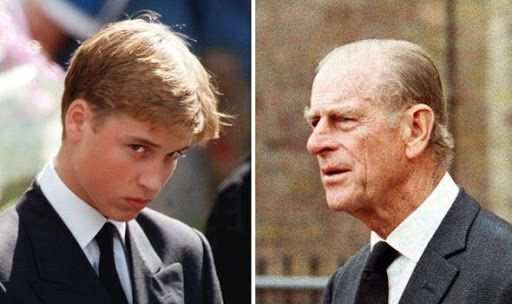
In the end the politicians almost didn’t get their way. Prince Philip stepped in to counsel his grandson, Prince William, after he had expressed a reluctance to follow his mother’s coffin after her death in Paris. Philip told the grieving child: “If you don’t walk, I think you’ll regret it later. If I walk, will you walk with me?”
It’s no wonder he was sought as a counsellor by other senior royals and especially close to his grandchildren, for whom he was a firm favourite. His relationship with Harry was said to have become strained, however, following the younger Prince’s decision to reject his royal inheritance for a life away from the public eye in America with his new American wife, Meghan Markle. For Prince Philip I am quite sure it went against all the elder Prince had lived his life by - self-sacrifice for the greater cause of royalty.
This is the key to Philip’s character and in understanding the man. The ingrained habits of a lifetime of duty and service in one form or another were never far away.
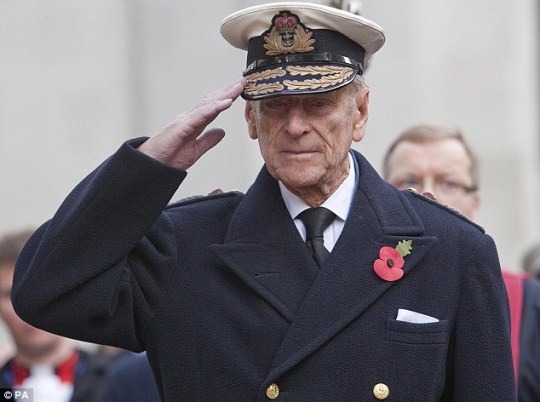
In conclusion then....
After more time passes I am sure historians will make a richer reassessment of Prince Philip’s life and legacy. Because Prince Philip was an extraordinary man who lived an extraordinary life; a life intimately connected with the sweeping changes of our turbulent 20th Century, a life of fascinating contrast and contradiction, of service and some degree of solitude. A complex, clever, eternally restless man that not even the suffocating protocols of royalty and tradition could bind him.
Although he fully accepted the limitations of public royal service, he did not see this as any reason for passive self-abnegation, but actively, if ironically, identified with his potentially undignified role. It is this bold and humorous embrace of fated restriction which many now find irksome: one is no longer supposed to mix public performance with private self-expression in quite this manner.
Yet such a mix is authentically Socratic: the proof that the doing of one’s duty can also be the way of self-fulfilment. The Duke’s sacrifice of career to romance and ceremonial office is all the more impressive for his not hiding some annoyance. The combination of his restless temperament and his deeply felt devotion to duty found fruitful expression; for instance, in the work of Saint George’s House Windsor - a centre and retreat that he created with Revd. Robin Woods - in exploring religious faith, philosophy, and contemporary issues.
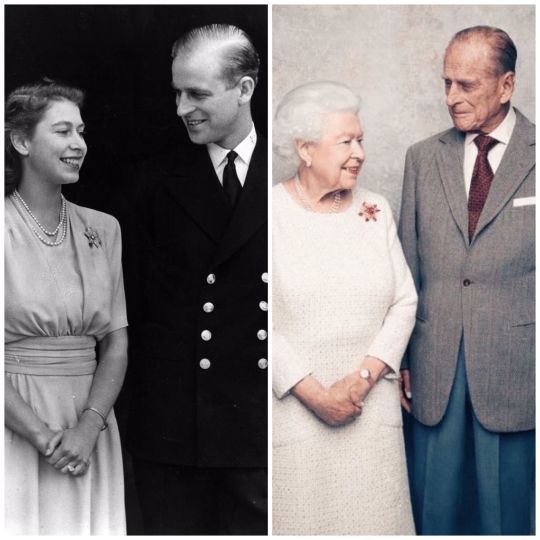
Above all he developed a way to be male that was both traditional and modern. He served one woman with chivalric devotion as his main task in life while fulfilling his public engagements in a bold and active spirit. He eventually embraced the opportunity to read and contemplate more. And yet, he remained loyal to the imperatives of his mentor Kurt Hahn in seeking to combine imagination with action and religious devotion with practical involvement.
Prince Philip took more pride in the roles he had accidentally inherited than in the personal gifts which he was never able fully to develop. He put companionship before self-realisation and acceptance of a sacred symbolic destiny before the mere influencing of events. In all these respects he implicitly rebuked our prevailing meritocracy which over-values officially accredited attainment, and our prevailing narcissism which valorises the assertion of discrete identities.
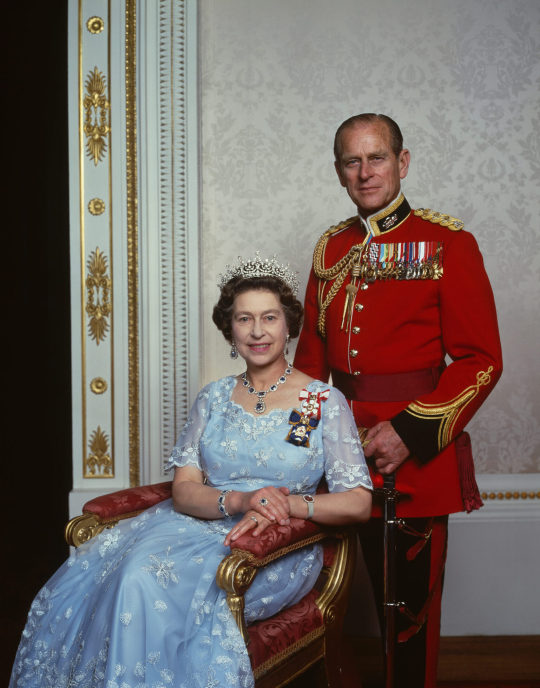
Prince Philip was Britain’s longest-serving consort. He was steadfast, duty driven, and a necessary adjunct to the continuity and stability of the Queen and the monarchy. Of all the institutions that have lost the faith of the British public in this period - the Church, Parliament, the media, the police - the Monarchy itself has surprisingly done better than most at surviving, curiously well-adapted to a period of societal change and moral anarchy. The House of Hanover and later Saxe-Coburg and Gotha (changed to Windsor), since their arrival in this country in 1714, have been noted above all for their ability to adapt. And just as they survived the Victorian age by transforming themselves into the bourgeoise, domestic ideal, so they have survived the new Elizabethan era (Harry-Meghan saga is just a passing blip like the Edward-Wallis Simpson saga of the 1930s).
There was once a time when the Royal’s German blood was a punchline for crude and xenophobic satirists. Now it is the royals who are deeply British while the country itself is increasingly cosmopolitan and globalised. British society has seen a greater demographic change than the preceding four or five thousand years combined, the second Elizabethan age has been characterised more than anything by a transformational movement of people. Prince Philip, the Greek-born, Danish-German persecuted and destitute wanderer who came to become one of the Greatest Britons of the past century, perhaps epitomised that era better than anyone else. And he got through it by making a joke of everything, and by being practical.
I hope I don’t exaggerate when I say that in our troubled times over identity, and our place and purpose in the world, we need to heed his selfless example more than ever.
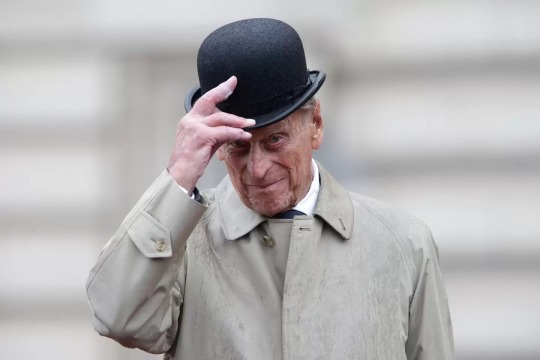
As Heraclitus wisely said, Ήθος ανθρώπω δαίμων (Character is destiny.)
RIP Prince Philip. You were my prince. God damn you, I miss you already.
Thanks for your question.
#question#ask#prince philip#duke of edinburgh#queen elizabeth II#the queen of spades#monarchy#britain#british#royalty#politics#history#culture#europe#crown#icon#great briton#society
284 notes
·
View notes
Text
TWD, S11-1A Arc Thoughts So far
There be spoilers here kinda sorta, but not really, it’s really just a general thinky-thoughts post on the first arc of season 11 of The Walking Dead as its “finale” aired on AMC+ the other night.
I generally read takes on The Walking Dead after it airs and since I'm a Caryl fan, I read the takes of their fans. However, I've found myself more and more not agreeing lately with the thoughts of even those I generally do.
The overall consensus appears to be that "nothing has happened" in this first arc. That it's pointless. Carol and Daryl have been separated. Carol/Melissa McBride has barely been on screen and the Reapers are boring and awful, and this whole thing is a complete waste of time. I'm gonna have to have a big ole disagree here. Let me elucidate as to the why.
The Reapers arc is NOT about the Reapers. Carol/MMB not having much screentime sucks now, but I believe there is a reason for that.
Let's take Carol/MMB first. Carol took a lot of unwarranted hate last season. Like A LOT. A lot lot lot..... Like a crazy, ridiculous amount of hate. Melissa McBride was ALL OVER the show last season. She was front and center all over the place. And she was magnificent... for Carol fans. Outside of Carol fans? She was hated. People were done with her. They were over. They wanted her gone. They didn't have sympathy for her. They didn't care that every child she loved, raised as her own, cared for was killed. They did not care. They didn't care that she was/is suffering other loads of trauma. They don't care how brilliant Melissa McBride is. They were just done with Carol's shit. Period. Done, finished, over.
Angela Kang REALIZED that. She also knows that Daryl and Carol are the HEART and SOUL and FUTURE of this franchise. Literally. There is a spin-off with those two. And if one-half of that future has a vocal majority of the online fanbase (and I've gone to other sites--just random, discussing TWD sites) that are tired of Carol's "shit," something has to be done to shift that attitude. So, guess what? Something is being done. Carol, in this first arc, is being shown sparingly, not shoved down anyone's throat. She is still getting shit done. She is fighting to save Alexandra. She was the one fighting to save Connie, BUT, she didn't get the glory shot. That was Kelly --as it should have been. And then Connie (and Kelly) in this latest episode both made the very clear choice that they wanted to help/work with Carol.
Kang is not sidelining Carol because she doesn't like her or because she's giving into the Carol-haters. She is doing this to ease the hate that had been thrown at Carol last season, rehabilitate her image while Carol rectifies her mistakes, when she pushed every one away, her vengeance helping to cause some of the issues that are facing Alexandria now. Carol is now helping to stop Aaron from going down the same path, leading the charge to save Connie, etc. So when the next arc begins and we see Carol more again--as I’m sure we will, it will be with a fresh perspective and a renewed appreciation for her character.
(Note: I know that Carol is extremely popular still. I’m just saying that they still want to ease the online hate for her.)
As for the Reapers. This arc is about three characters: Daryl, and Maggie and Negan. Let's start with Maggie, and Maggie and Negan.
We haven't seen Maggie for years. She was a major player on the show, so naturally she is going to get a major arc upon her return. This is her major arc. I think we had two options. We could see her dealing with her (understandable) Negan issues in Alexandria which would have taken away from Carol's arc, involving Carol and all she did, letting Negan out, bringing Alpha into it, stirring up resentment between her and Maggie--which would undermine what Kang is trying to do for Carol!
OR, she could take Maggie and Negan OUT of Alexandria and have Maggie deal with her (understandable) Negan issues away from Carol, not bringing her into it. Let Maggie and Negan hash it out together. That's what Kang did, that's what she is doing. This is Maggie's arc, it's getting her to a place where she can live in some kind of harmony with Negan. This HAD to be done to give Maggie any kind of "happy" ending. It had to happen, and it had to happen away from Alexandria/Carol to give Carol her fresh start with viewers to stop the haterade parade.
Now, Daryl... Kang's first season as showrunner, well, the first half was basically spent getting things back on track after the mess that Gimple had made of the last 3-4 seasons. The next half of that season was deeply exploring Carol's character, going in-depth on that bad boy. The next season--which was last--continued that exploration, but also added a season-long deep dive into the bond between Carol and Daryl. So, what are we getting now? Why naturally, a deep exploration into who? Daryl Dixon!
I adored the episode "Find Me," and I'm so thrilled that we got it. The original plan was to include the romantic relationship with Leah in a few flashbacks when Leah was introduced with the Reapers. I'm so happy it didn't happen that way because (a) it would have lessened the depth of exploration of Daryl's character, and (b) it would have jettisoned the gorgeous Carol parallels. Having this whole arc about the Reapers isn't pointless, doesn't not matter because Daryl isn't pointless, Daryl doesn't not matter.
Because we had that parallel between Leah and Carol, we can see so clearly that Daryl has a type. (Take that, Carol ain't his type, hah!) We can also see that Daryl will always try and save people. Yes, yes, we already knew that, but because of this arc, we see that Daryl has learned, finally!, that once the jig is up, the jig is damn well up and when you can't save someone, you can't save them. We're also seeing different sides of Daryl, that he can blend in, that he has learned from Carol.
As for Caryl, Daryl and Carol can't be Caryl until both sides are healed enough to stop talking in circles and truly talk. We saw that in "Find Me." Carol is healing. If she doesn't let herself heal, she'll constantly be torn apart by guilt. Daryl is finding that he can't save everyone, he has to save those who matter most TO HIM. Otherwise, he's constantly going to try and save everyone and be torn apart by guilt. They have to do these things separately.
They already know they have each other's backs. They already know the other will NEVER turn on the other, leave the other. That's not in question. Carol has been broken inside. Daryl can't fix that. Daryl has a martyr complex trying to save everyone. Carol can't stop him. That is something they have to figure out themselves or it won't work. So... again, Carol is healing. Daryl is figuring it out.
And then they will come together. For now, in this arc, they are getting their ducks in a row, it’s just a separate thing. So, the first arc of this season? Not pointless at all, in my opinion.
50 notes
·
View notes
Text
No, I am not done talking about aging up the characters of the Grishaverse, thank you very much...
(Spoilers for pretty much all of the Grishaverse!)
I’m going to come right out and say it - I don’t think aging up all of the characters was the smartest move. I think the Grishaverse is compelling, and the characters can be very complex, and part of that leans on the ages of the characters. I’m going to be talking about why I think (at least some) of the characters should have retained their same age, or at the very least, shouldn’t have been quite so aged up.
But first, I understand some reasons as to why they aged up characters, so I’m going to state them outright, to advocate on their behalf (but also, I can try my hand at debunking some of these. For funsies):
1. Mass audiences will be less interested if the main story feels too Y.A. - most adult audiences won’t want to watch that genre.
(This is a very fair argument! However, when comparing Shadow and Bone to other popular (non Y.A.) fantasies, Shadow and Bone is very Y.A. Compare Game of Thrones or Lord of the Rings to Shadow and Bone, and you can see how the Y.A. genre permeates the text. There are character moments and story beats that Shadow and Bone utilizes that are characteristic of the Y.A. genre. It was created with that audience and expectation in mind. No matter how hard the show tries to divorce the source material from it’s Y.A. roots, it is still very much a Y.A. story. The second most important plot line is a romance and not the implications of how society created the Darkling and how society Must Be Fixed if we ever want to move on and win the war. Those problems of the wider Grishaverse are better tackled in the Nikolai Duology (which still stumbles), and the Nikolai Duology feels like a different story/genre because it’s tackling something different. Shadow and Bone is an inherently Y.A. story, and really, it is the later books in the Grishaverse that deviate from the tropes and traps of the genre. No matter how you dice it, the original trilogy is very much a Y.A. story. Lean into it, and you might be better able to mess around with the fluidity of the genre, all while your audience knows what the story is, and what will come of it. Alternatively, the writers could have gotten deep into the text and tried to bring up the deeper problems of the story (most of those grey areas) to make it less trope-like, but that would require an almost complete retelling, which we did not get. Too often, Y.A. stories are divorced from the genre when they are adapted, but it’s not done in an organic way that looks at the text itself, and it feels very off when viewing. Just let Shadow and Bone be what it is. If you want a longer rant on this, hmu.)
2. Some very serious things happen to these characters! To write about it is one thing, but to watch a 17 year old Alina be manipulated in this way or to watch a 19 year old Genya be used in this way is dark and very much Not Okay!
(Yes! Watching all of the terrible, terrible things happen is bad enough on it’s own, and when you de-age Alina from 25 to 17 and Genya from 30 to 19, there are some very big consequences! It’s not nearly as inviting or Okay to view! Anyone would be rightly horrified! Especially older audiences! Well, forgive me for being so blunt, but that is part of The Point. Part of what makes all of this so cruel and so unfair is that these characters are young - they are barely no longer children - and that is what heightens the injustice of it all. Alina is a teenager who is tasked with saving the world and freeing an oppressed people! And she doesn’t want to do it! That’s a lot to handle, right? Arguably, by keeping their young ages, you are better breaking out of the Y.A. adaptation trap because you are making a statement about how young these characters are and how unfair all of this is. Y.A. adaptations always age up the characters for palatability, but by keeping them young, you are making it more grungy and more frightening without even changing the source material!)
3. Okay, but adult audiences don’t want to ship teenagers. How will we get them to watch?
(This argument is probably the most sound, and it makes the most sense! Netflix wants to get the widest audience they can - they know teenagers who read the book are going to watch it anyway, so they need to get the older crowd invested. An easy way to get people invested is to get them hooked on a romance plotline. Then you have to watch the show to see how it progresses! It would be hard to do that if adults feel uncomfortable telling 16 year olds to kiss already. Another problem is that Shadow and Bone doesn’t have an adult cast - they have the young ones and that’s about it. Compare that to Game of Thrones (or, if you want me to stop with GOT references, shows like Cobra Kai) where there are 2+ generations - fans have the older group to ship, and the younger group to wish the best for. This is a trap of the Y.A. genre. They are Kids, but they are Not. In the book, this works fine, as their ages aren’t mentioned often. In fact, in the books, they read like competent 25 year olds, except for key moments when they show their age, which usually feels bittersweet (the Six of Crows Duology is much better at this than Shadow and Bone, but I digress). So what do we do? Well, D*rklina fans aren’t going to like this, but I would argue that we keep Alina and Mal aged down, and the story subliminally changes from “the love triangle” to “coming of age while dealing with abusive relationships”. In fact, this is another great way to divorce it from the Y.A. genre, which was already a goal we had in mind.)
✧ *:・゚
Now, let’s move onto character analyses... everyone’s favorite.
In this section, I’m going to break down some main characters from the Shadow and Bone Netflix show (and some upcoming characters, just for the hell of it) and I’m going to advocate for changing their ages. At the end, I’ll give you a rough ballpark estimate for what I think they should have been.
(Also, I just want to address that I loved the actors chosen for the Netflix show, and this is in no way an attack on them. They did great, and they’re performances were amazing. This is me talking about an issue the showrunners made, not the actors.)
Alina Starkov
First, we get to talk about the lovely Alina Starkov. Jessie Mei Li is 25 years old. Her book counterpart is 17. That’s a whopping 8 year difference where a lot of growth happens. Alina Starkov in the books is doing her best for a girl who is told that she is going to save the world. She doesn’t have a lot of experience outside of the orphanage and the army, and so her knowledge of how Grisha are treated is ignorant at best, and malicious at worst. She doesn’t see nearly all of the suffering that is happening in the world, and for the most part, it stays that way. She knows the Fjerdans don’t like them, she knows the Shu are bad too, but she doesn’t really know the extent. She really gets a good look at it in the 3rd book, but for a large part of the series, Alina doesn’t really know what she’s up against, and her age is an easy explanation for her ignorance. A 17 year old growing up in a remote orphanage hasn’t had the greatest education. A 25 year old Alina has less excuses.
(There’s also a lot to be said about how Alina mostly... doesn’t care about the wider issues plaguing Grisha. This is decidedly Bad. I’m going to say this once, and I will say it many times again, but generally, audiences are more okay when a younger character does Bad Things because they reason they’ll learn in time. Thus, for a show, it’s strategically better to make these characters younger. Saying this doesn’t mean I support Alina’s disregard, it just means I recognize how it is utilized in storytelling.)
But why is her ignorance important, you ask? Because, Alina misses a key point of why the Darkling does what he does. To her, his actions of expanding the Fold are very black and white. Even when she’s with him, she refuses to see how it’s justified. Thus, a younger Alina is a little more understandable.
If Netflix was planning on focusing on how the Darklings desires are good but his methods are wrong, keeping Alina aged up is fine because she could be the voice of those concerns. However, I don’t really see that happening, so aging her up seems cheap.
Furthermore, part of the injustice of Alina’s character is that she is a child tasked with saving the world. She is a teenager who is being worshipped as a Saint, and who is going to have to martyr herself for the good of the world. It’s unfair. It’s cruel. Alina being 25 doesn’t somehow change this injustice, but to the average viewer, seeing a 17 year old child dying for the good of Ravka - dying because she’s the only one who can stop the villain - is more emotional and more disturbing. There’s your grit, Netflix. It was already handed to you.
And I know, Ben Barnes (who plays the Darkling) is 39! It would be extremely uncomfortable to watch him fall in love and manipulate Alina! Again, I’m apologizing to the D*rklina shippers, because that is The Point. The Darkling is hundreds (perhaps thousands) of years old. That is why his talk of “eternity” is so compelling. He has felt it. He has lived it. When he tells Alina that he will break her, it should be greatly disturbing! It would change the feeling of the story completely if Alina looks like a teenager. It would be a story about survival - not of romance. And while survival is definitely a Y.A. dystopian or fantasy trope, depending on how it’s handled, it could be markedly different from its predecessors.
However, book Alina is a minor, and that doesn’t sit right with me. Thus, I would make Alina 18, or 19 at the most. She should still very much be a teenager.
Malyen Oretsev
Mal is the next character we get to talk about, and I’m sure you have an idea about what I’m going to say. Archie Renaux is 23 and his book counterpart is 18. That’s only a five year difference, which isn’t that damning, but still leaves some problems.
One thing a lot of people disliked about Mal in the books was his temper and the way he expressed his frustrations. Now, while it’s true that viewers tend to be more forgiving with male characters having bad attitudes, this attitude problem could still be something that viewers will dislike in later seasons. This problem is only larger when you factor in an older age. Already, I expect people to complain about Mal’s temper and his inability to vent his frustrations in a healthy way (avoiding talking to Alina, blowing up, having a sour mood, having violent or explosive tendencies). This is only going to get worse when another argument added is “he is a grown man. He should have learned how to cope by now.” This argument isn’t completely nullified by a younger age, but it is made a little more understandable to the audience. (Again, in no way am I justifying these unhealthy behaviors, nor am I saying it’s okay when younger men do it, I’m just saying that viewers on a whole are more likely to excuse this behavior from a younger man - a sad reality, but a reality nonetheless.)
And as for his tracking ability, which is the best out of everyone in the world, he is gifted primarily because he’s an amplifier. At the end of Ruin and Rising, it’s noted that he can’t track nearly as well as he could because the world doesn’t hum with life in the way it used to. The in-world explanation probably also explains the ease with which he can pick up new skills. Thus, Mal doesn’t need to be aged up for skill reasons.
So, I would make Mal 19-21 in the series. He can be the slightly older than Alina, and everything works out how it should.
The Darkling
This one is going to be really quick - I think the age they made the Darkling was fine. Ben Barnes is 39 and we really don’t get an answer as to how old the Darkling is in the book (although he’s older than 400 years old, because the Fold was created 400 years ago).
It’s worth noting that in the books, the Darkling isn’t described as being much older than (a 17 year old) Alina, but having him be markedly older than Alina was a smart move for subtext, but also for the presence that the Darkling has, and the reverence with which people regard him. The Darkling has power - I can’t imagine a 17 year old boy having the same effect as a grown man.
I have no beef with a 39 year old Darkling. I wouldn’t age him down much more, but I also wouldn’t make him much older, either.
Genya Safin
Genya Safin is another character I feel like should be addressed. Daisy Head is 30 years old. In the books, Genya is 19. Now, Genya’s character is an interesting one, because arguably either age suits her character. Throughout the series she’s shown to be more mature and capable than Alina, and while she places importance on the cliques of the Little Palace (which was poorly shown in the show, imo), she was raised in this environment from very young, and she’s at the bottom of the ranking. Her investment in it is justified. Sadly, I think more viewers would be moved by her story of sexual abuse if she were younger, but what happened is a tragedy and it was wrong no matter how you dice it.
Her age is one of the few I’m neutral on.
However, she and Alina are shown to be very close in the book, and while that doesn’t carry over as easily in the show, I think it would be nice to place her at least a little closer in age to Alina, but still keep her a little older so that she can offer her advice and it doesn’t feel preachy or unearned.
I would place her around 19-26. She has a lot of room for her age, because it’s not vital that she be any specific age.
David Kostyk
I’m very briefly talking about David because Luke Pasqualino is 31 and David in the books is 19-20. I aged down Genya, and since they are love interests, I would like them to be in a little closer range of each other.
However, David is a very gifted Fabrikator - so much so that he changes the war considerably in later books - so I still want him to be older than the average cast.
I would place him around 24-29, and mostly, it would be based around the age of Genya. I wouldn’t want him to be 29 if Genya is 19. That’s just the ballpark range.
Zoya Nazyalensky
The final Shadow and Bone character I’m going to talk about is Zoya because she’s really important later in the Grishaverse. Online, I could not determine exactly what Sujaya Dasgupta’s age is, but the two ages most commonly given are 19 or 21. Zoya in the books is 19-20, so Sujaya is one of the most faithful castings in terms of age.
I think it’s important that Zoya is around the age of Alina. Not only do they have a shared love interest in the form of Nikolai (and the Darkling in the show, which I absolutely hate), but they also have a rivalry for the Darkling’s favor (which isn’t romantic, but about sTATUS), and having her be markedly older than a teenage Alina would be weird, in my opinion.
Furthermore, Zoya’s character is pretty closed off and (dare I say) one-dimensional in the original Shadow and Bone trilogy, so keeping her younger isn’t going to make her any less believable. She’s not particularly wise, so keeping her young won’t be an issue.
Finally, she has a romantic plotline with Mal (even if it doesn’t go anywhere), so we want to keep her within range of Mal’s age, too.
I would place Zoya at 19-22. Thus, I am in agreement with the showrunners!
Nikolai Lantsov
A character that has yet to make an appearance in the show is Nikolai Lantsov, who is stated as being 20-21 in Siege and Storm, and the rest of the Shadow and Bone trilogy. Nikolai hasn’t been casted yet, but I decided to put him here because why not?
Nikolai, interestingly enough, is a character I would like to age up, however, only slightly. Nikolai is a very accomplished character, as anyone who has read the series knows, and while he does have the grooming to be that smart and accomplished, he is able to outsmart the Darkling and other older characters on multiple occasions, and him being so young just seems off. Of course, I understand why he is young - his love interests are, and he certainly has his moments where he’s boyish and unprepared - but these reasons pale in comparison to all of his talents and accomplishments.
Taking all of this into consideration, I would put Nikolai at 23 or 24. It’s a minor age change, and it would really just make him more apt to grow into his role. He’s still young enough to where people can underestimate him, but he’s old enough to justify having such smarts and charm. The only argument I can see going against this is his love story with Alina, seeing as she’s 18/19, but I think there was a lot that went into his pursuit of Alina. At first it was political, but after that, it became about how Alina was someone who challenged him and knew him for all that he was. It was less of a romance and more of a friendship that lended itself to a nice opportunity. It could have been more. It wasn’t. Plus, the age gap isn’t egregious.
Tamar Kir-Bataar and Tolya Yul-Bataar
I’m briefly talking about these twins, because they are originally 18-19 in the Shadow and Bone Trilogy, and I would like them to be older overall. Tamar and Tolya are some of the most competent characters in the Grishaverse, and having them be the same age as Mal and Alina is off, in my mind.
I would like them to be at least Nikolai’s age or older, so 23-27.
✧ *:・゚
Finally, we’re on to the crows....
Kaz Brekker
Ah, yes. The Bastard of the Barrel. His is a character I was actually really glad to see aged up, before watching the show. Afterwards, I have some more complex thoughts. Freddy Carter is 28 years old and Kaz, in the books, is 17.
Kaz in the books is very competent. So much so that he outsmarts everyone he comes up against - characters who are older than him and often have military strategy. Furthermore, he is ruthless. He is probably one of the darkest characters in all of the Grishaverse, and all of that is placed on the shoulders of a 17 year old. To make a comparison, he and Alina are the same age when their stories take place (Shadow and Bone for Alina, and Six of Crows for Kaz). I don’t know a lot of young celebrities to make the comparison, but he’s a teenager. He’s a child. Aging up Kaz in the show was something I was very much on board for. Kaz is a ruthless killer and an expert thief, and making him older was a smart move, imo. A Kaz in his 20′s made more sense.
However, when we meet Kaz in season one of Shadow and Bone, he’s very much in his fledgling state. Not a single plan of his goes as planned. He is foiled at every step, and the most gruesome thing he did in the show wasn’t bad, when you compare it to thing Kaz has canonically done. Rumors say that the Six of Crows arc is going to pick up in season two, and while I hope it doesn’t, I covered that particular argument far more in depth in another post and won’t address it here. Whether or not I think show Kaz is up to snuff, I think they aged him up too much and they depowered him too much.
Part of Kaz’ secret weapon was that he was wicked smart and crazy competent, but people underestimated him because of his age. They figured he didn’t have nearly enough experience to be as ruthless and cunning as he was. They were clearly wrong.
I think that Kaz in his 20′s makes sense, but Kaz in his late 20′s does not. Especially when you factor in the fact that he was so epically unsuccessful in the show, the extent to which they made him older wasn’t doing him any favors. It made him less “Dirtyhands” than he is.
So, final say, I would have made Kaz 20 or 21 in Shadow and Bone. We’re de-aging him so he still has time to grow, but he’s not crazy overpowered at 17. Furthermore, in a perfect world, he has time to age between Shadow and Bone and the events of Six of Crows.
Inej Ghafa
Inej is played by Amita Suman who is 23 years old. In the books, Inej is 16. In an interesting turn of events, I don’t find Inej in the books to be terribly overpowered so much as she is just really talented.
Inej in Six of Crows is hesitant to kill. She’s smart and watchful, and she’s a really great spider. She’s given backstory to explain all of this, and it makes sense. At most, she is mature for her age, but that is also given a pretty damn good reason. She has to be.
The few reasons I could see as to aging up her character is to make it less awkward for the romance between her and Kaz, as well as make the crows group more cohesive in age, with fewer outliers, both of which I am not against.
I would make Inej around 18 or 19 and call it a day.
Jesper Fahey
Jesper is another character that I largely have no problems with. Jesper is played by Kit Young who is 26 years old, and in the books, Jesper is 17.
In the books, Jesper is an extremely talented marksman, but part of that (even if he doesn’t know it or doesn’t want to acknowledge it in the books) is because he is a Grisha Fabrikator and he is using his gifts to bend the bullets he shoots and aims them where they need to go. His character wasn’t particularly overpowered in the books, and as for his personality, in the books he acted the most “teenage-like,” but in the show, he retained his same youthfulness without it seeming out of place, so that isn’t particularly damning.
For Jesper, I don’t mind aging him up or making him younger. Both work.
However, he has a romantic plotline with Wylan (who I will get to eventually), so we wan’t to keep that in mind.
Final say, I would make Jesper 18. He’s the same age as (or slightly younger than) Inej, and that sits well with me.
Matthias Helvar
Oh, boy. If you’ve been on my blog long, you know this is the character that started this whole rant. Because here’s the thing: Matthias is an incredibly complex character. And part of that complexity comes from the fact that Matthias doesn’t know about anything beyond what Fjerda has taught him. He is heavily indoctrinated and heavily ignorant, and his struggle is what makes him such an interesting character.
Matthias is played by Calahan Skogman who is 28 (in my other meta, he was 27, but birthdays, y’know?). In the books, Matthias is 18 when Six of Crows takes place. That’s a whopping 10 year age gap. As you can imagine, so much happens in 10 years time. Now, with Matthias, we’re going to look at his life a little more in depth so that you can really understand how this 10 year gap affects his ignorance.
Matthias’ family were killed by Grisha when he was a child. We don’t know how young, but that doesn’t really matter, because either way it’s traumatic. Soon afterward, he starts training to become a soldier. Now, just when drüskelle are allowed to be fully initiated at Hringkälla is unknown, but I’m guessing the age would be at youngest, 14 (although, it’s probably closer to 16, but I’m not arguing about that right now). Grisha are supposed to be the most dangerous type of person. The Fjerdans are not going to put 12 year olds out there to fight them. So, a roughly 14 year old Matthias is going on expeditions to catch Grisha. When he is 17, Matthias meets Nina. At this point, he has only been a full drüskelle for 3-ish years. Regardless of how many Grisha Matthias has captured, 3 years is a vast difference from his show counterpart, who is 28 and therefore (as a drüskelle since he was 14) has been capturing Grisha for 14 years. In fact, in the show, they give Matthias props for having been the one with the clever ideas for capturing Nina, which shows he has done this often. After that, Matthias spends one year in Hellgate, making in 18 in the books and (eventually) 29 in the show.
So, why was it so important that I detail that for you? Matthias’ change of heart is prompted by Nina, a pretty Grisha. I’m not saying their bond is shallow, but if you are a man who has a nasty past with Grisha and has been hunting them for 14 years, having a pretty Grisha change your mind is a little shallow and a little unbelievable. Even though Nina saved his life, I think it’s a little hard to sell the substantial change of heart he has. On the other hand, if Matthias is 18-19, he’s still a hormonal teenager, and his feelings for Nina prompting some critical thinking makes more sense. Furthermore, Matthias is younger and more impressionable. It would be much easier to change his worldview, if he were younger.
All in all, I would de age Matthias to be 19-20. Slightly older than in the books to allow for Nina to be a little older than her book counterpart (which I’m about to get to.)
Nina Zenik
Almost finished with my rant, we’re talking about Nina. Nina is played by Danielle Galligan who is 28 years old, and in the books, Nina is 17.
Now, Nina Zenik is a capable character. She is a spy. She speaks multiple languages, she’s a talented Grisha, and she’s quite self-assured. All of that advocates for an older Nina, so that she may have time to hone these impressive skills. Furthermore, Nina is the most sexualized of the Crows. I wouldn’t mind her being older, and I’m sure general audiences would be in favor of her not being a teenager.
Nina is also a soldier and she has a very complex storyline in Six of Crows, and later. By all accounts, aging her up is not a bad idea. In fact, I quite like the idea that Nina is older. I agree that she should be aged up, just not to the extent she was.
If this were my world, I would make Nina 20-22. That would make her the oldest out of all of the crows, and I quite like that.
Wylan Van Eck
Wylan has yet to be casted, but he is 16 in the books, and pretty damn smart. He’s not street smart, mind you, but he’s a chemistry nerd and demolitionist, so he’s very competent. He’s still under his father’s thumb, but I don’t take that to mean he has to be young - abuse can affect you well into your life. He’s definitely a character more naive to the realities of the Barrel, but that can easily be played off as “the rich boy is out of depth.”
There’s nothing that explicitly needs him to be younger than an adult, although the argument for making him young amongst the crows is strong and still stands.
He has a love story with Jesper, so we want to keep in mind the fact that Jesper is an adult.
Wylan also has the tricky little storyline of him being tailored into being Kuwei, so in determining his age, we want to keep him in the ballpark of Kuwei. Luckily, he was tailored from a Grisha on parem, so truly, anything is possible.
For his smarts, his competence, and his love story, I think we should age him up.
All in all, I would make Wylan 18. It’s not far from his book counterpart, and I think it makes sense.
Kuwei Yul-Bo
Kuwei is another character who was yet to be casted. He is 16 in Six of Crows, and I would say he is the character who most shows his age. Kuwei may be wicked smart, but he’s a chaos gremlin who doodles in his notebook, pretends to not understand Kerch, and also renames himself to be nhaban - “rising phoenix” in Shu. He doesn’t scheme the way the rest of the crows do, and while this can be explained away by the fact that he’s not a criminal, there still seems to be something hopeful and youthful about his character.
He’s still a boy in mourning over the death of his father, and he’s currently one of the world’s most wanted. In Crooked Kingdom, he’s vibing in a tomb for the majority of the book. Kuwei is honestly such a fun character that I hope gets more complexity in coming Grishaverse content.
Kuwei is very similar to Wylan in that he’s wicked smart (although his dad is a scientist and they have worked together, so there is some in-world explanation) and he has a crush on Jesper (don’t we all?).
Taking this into account, I would make Kuwei 17 or 18.
✧ *:・゚
TL;DR, the characters of the Grishaverse were aged up and I’m a little miffed about it. The reasons for aging them up are to detract from the source material being a Y.A. story, but you cannot separate a story from it’s genre. The story is inherently Y.A. because it uses story beats that are typical of a Y.A. story. It’s not just viewer expectation - the story is Y.A. The ages of the characters in the books are very young in some cases, but in the show they were aged up too much, imo. It detracts from the tragedy of them being young and forced to survive, and it adds very little in most cases.
✧ *:・゚ tagging @missumaru
#grishaverse#shadow and bone#shadow and bone spoilers#s&b spoilers#alina starkov#malyen oretsev#the darkling#kaz brekker#inej ghafa#jesper fahey#nina zenik#matthias helvar#genya safin#zoya nazyalensky#nikolai lantsov#david kostyk#wylan van eck#kuwei yul-bo#meta#grishaverse meta#shadow and bone meta#i am once again ranting about the grishaverse#like... no one asked for this but also you asked for this don't lie
56 notes
·
View notes
Note
Hi, aspoonofsugar....if you don't mind me asking who are your top 10 fav anime couple (don't have to be canon)? And why you like them? Sorry if you've answered this question before.....
Hello!
I have answered a similar question here! In general I would say I am not a huge shipper and usually I am more invested in platonic/siblings relationships than romantic ones.
Anyway, other thant those in the post I linked I also like...
1) Eremika
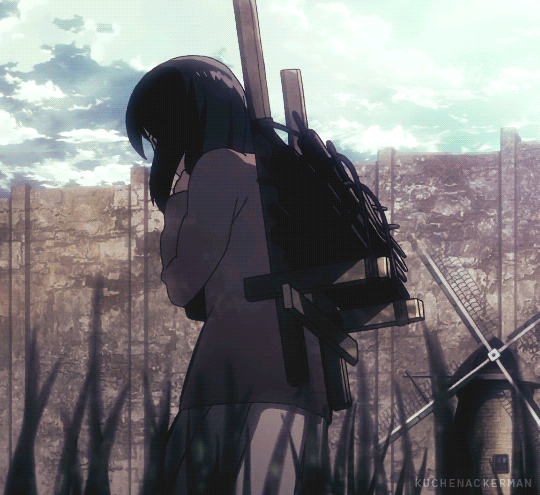
It is a very tragic relationship and I really liked its resolution. I have discussed it in multiple post, so just search my #eremika and #mikasa ackerman tags.
In short, it is a very rich relationship which has both beautiful elements and unhealthy aspects. It is also a relationship that changes with time transforming from gratitude on Mikasa’s part to familial love and finally blooms in romantic affection... or so it should... except that Eren’s refusal to grow makes so they never have the chance to live a proper relationship.
2) Yumihisu

I like how Ymir and Historia’s arcs are complementary and how they help each other to fully live. I think the way this plotline was solved was bad though and somehow it seems cut.
3) Galco

I love Gabi and Falco and how their relationship mirrors Eremika... Falco runs after Gabi, but differently from Mikasa he manages to reach her and she manages to stop herself in time to truly observe others and the world.
3) Catradora
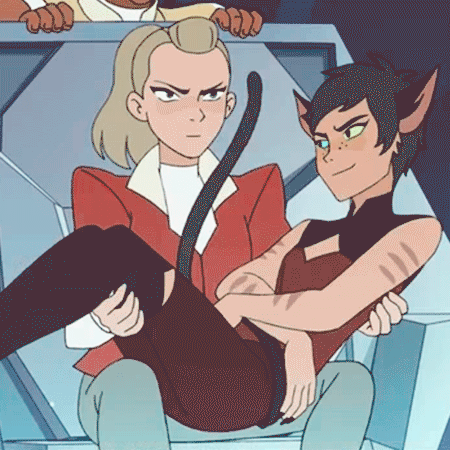
I really liked its development and how complex it was! Catra is so selfish she ends up damaging herself because she cuts people off... Adora is so selfless that she ends up hurting her loved ones by leaving them behind. I really liked how these opposition is explored... firstly by giving Catra space to grow and to overcome her selfishness... only to focus on Adora’s martyr complex in the ending.
If to this, you add the deconstruction of the good victim and bad victim dynamic it comes our a pretty layered and powerful relationship.
4) Red Crackle
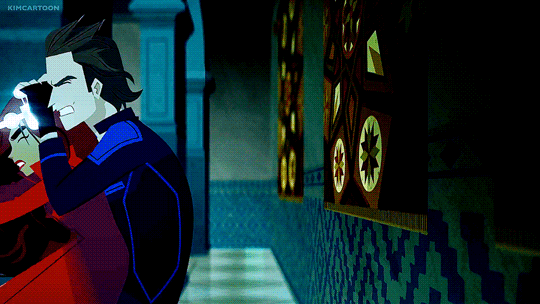
I have explained why I love it here. Gray and Carmen are opposite, but complementary... they walk opposite paths and meet in the middle. They clearly care about each other, but their opposite wishes make them enemies.
Also, Gray’s development in the ending of the series is what really made me love it so much as I did. It is just very well made imo.
5) Emercury
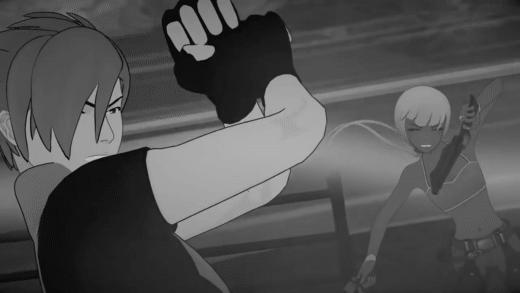
Tbh I do not really care if this relationship is romantic or familial... it is just a bond I love and I can’t wait for it to receive payoff.
I am going to answer a specific ask on it soon, so I won’t write much. Still, I really like Emerald and Mercury’s interactions... how they are clearly set up to be complementary and how both tragic and hopeful their bond is at the same time.
They are two traumatized kids that have grown to care for each other... still, they are in such an abusive environment that they are not really able to help each other.
6) Hisoillu

I do not care if you see them as romantic or... utilitaristic... their interactions and bond is hilarious...
They are two people completely unable to have healthy relationships.
Hisoka creates connections only through fighting. He basically makes excitement for fighting, sexual attraction and love overlap.
Illumi needs to have every relationship regulated by a contract not to lose control.
The fact they somehow manage to get along... is in itself a miracle :’’’)
7) Killugon

I do not care if you see them as romantic/puppy love or as friends. Their bond is clearly very complex and important for both characters.
I have especially liked how the CAA deconstructs their relationship and shows its unhealthy aspects, so that both boys can grow separately to meet again in the future.
8) Mutsurie
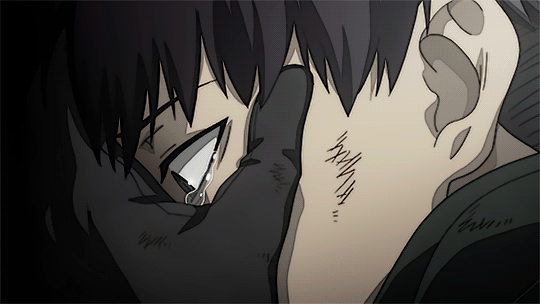
I really like their relationship and the focus they received in the Auction arc. It was set up perfectly with them being opposite. It is a pity there was not payoff.
9) Ayahina

Again... I relationship who had the potential to be extremely interesting and of which I really enjoyed the little fragments we got. Still, it is once again a relationship, which was not truly delivered in any significant way and Ayato and Hinami’s character arcs were kinda shoved to the side.
EDIT: I knew I was gonna forget one of my favourite ships :P
10) Soukoku

Dazai and Chuuya’s relationship is visceral, conflictual and unavoidable.
It is a relationship they were forced to forge because of how a good combination they made... so they came to know each other very well despite being unable to stand each other.
And the reason they can’t stand each other is that they are opposite in a radical way... Dazai rationalizes to the extreme, while Chuuya feels to the extreme. At the same time, they are lonely... Chuuya is too strong, while Dazai is too smart. This is also why they are asked to work together so often...this creates a strange partnership where it is not they see eye to eye (quite the opposite), but they at least manage to survive the other. A mutual survival contest is literal what their bond is about.
At the same time, there is clearly something deep going on between them. The truth is that Chuuya is scared of Dazai’s suicidal tendencies because he sees in them a projection of his own emptiness. Similarly, Dazai would never admit it, but he admires Chuuya’s humanity and how it is never lost despite his abnormal background.
Thank you for the ask!
#eremika#yumihisu#galco#catradora#red x crackle#emercury#hisoillu#killugon#mutsurie#ayahina#soukoku#asksfullofsugar#thanad-zid#chain of faves
58 notes
·
View notes
Note
okay fuck it 3 and 14 for all your commanders too, I'm too tired to pick uwu <3
As requested in your DM, 14 has been changed to 13✨ buckle up for the reckoning you've just put me through on explaining who my commanders would die for!
3. What was their childhood dream?
Laighe's dream was to help, to be a hero. She'd been raised on tales of victory and grandeur, groomed and molded into the perfect valiant as a favorite of the Pale Tree. She just wanted to be a hero
Taomesin had almost no time before they were forced to grow up, but for those brief months...they dreamed of simply getting to explore the world. They got their wish, tragically enough
Matthias simply dreamed of leaving. Having a life like the kids he was trained to target, parents like the adults he learned to scam.
Cara wanted to lose the rules binding them to all these arbitrary morals and decencies. They longed to just follow their impulses, to do harm.
Ruan dreamed of one day seeing the homeland of their ancestors, the beautiful lands of Cantha from the stories passed down through generations and to help heal the lands
Kai dreamed of leading blood legion, being an imperator destined and bred for greatness. She would rise above all these weaklings born to follow her.
Roibird dreamed of life beyond the Grove, getting to go outside and move through the forests of his own free will and to meet new people out there.
Vuisce dreamed of exploring the eternal alchemy! Synergetics was their jam and they loved looking through the pictures of textbooks they didn't yet comprehend.
Joel, way back in the day when it was still a small child who hadn't yet fully comprehended how cruel the world could be to someone who didn't fit a perfect spot, dreamed of finding the perfect family to adopt it. Surely someone would see it and immediately fall in love, whisk it away to a beautiful home full of adoration and devotion...
13. Who would they die for?
Laighe is...complicated. The answer has changed so many times. After all, she would live for her family, but death? Heroes don't die do they? Heroes don't abandon others, don't ask to die or give in. Heroes carry hope and safety and so many promises of better days. Perhaps that's why she can't die, why fate twisted the way it did. Why she couldn't even die if she wanted to now. Living is what you do for everyone else, it's a promise and devotion. But dying? Dying is personal, for most it's a fear but...Laighe? Laighe would die for herself. She would end this only for herself, a single moment of pure selfishness, an act she's attempted and failed but would attempt again if she had a renewed hope of success. Laighe would die for her own sake.
Taomesin isn't an easy answer, though up until Icebrood it would've been a single name without dispute or doubt. They would've died for their Commander, he was their everything. Life didn't exist without him, they did every little thing just for him. But after he abandoned them and left them to die, who could they do anything for? They're still looking for the answer themself. What do you do when the man who was your world shows it all to be a lie? There's no one to die for now. Work is still work, they live for it sure but what would they sacrifice themself for now?
Matthias is simple. Almost ridiculously so, if it weren't so heart wrenchingly meaningful. Aildyn. Of course. There'd never be another option, there never was one before them. If it meant they could live and flourish and carry on, he would give it all up.
Cara wouldn't. They simply wouldn't. No one is worth it, no thing is worth it. Their life is worth more than any paltry sacrifice or martyr complex.
Ruan would die for Camilla, and nearly has twice now. Both times, they would have accepted their death in place of hers. It's so simple to them, they love her.
Kai would die for her team, she would sooner die than lose anyone else for any reason. She knows its hypocritical, with how she was the sole cause of her old warband's deaths, to want to singlehandedly protect this new team. Perhaps her old 'band is watching her scornfully from the mists. She has a reckoning coming and she's well aware of it...but she will keep this group alive, by the gods, if it costs her everything.
Roibird would die for aurene, plain and simple. He knows what she represents and means here in the world, how her death could pull everything back catastrophically. He'd die to prevent that readily.
Vuisce would die for the dragons. All of them. They are a protector of the balance, and the elder dragons that facilitate the cycle of magic, and they will not fucking let anyone mess with that so long as their heart still beats in their chest.
Joel would die for no one. Yes, it values its new family a great deal, it has prevented disaster and saved lives whenever possible. But it spent a long time relying purely on itself, and already once it has relied on another life extinguishing to save it, even if it was an accident. No, it will not die for anyone. But it will live strongly enough to keep those around it alive and well too. It will live, and by the gods you will too.
Gw2 Commander Asks
4 notes
·
View notes